EMOTIONAL SUPPORT

A celebration of neurodiversity comes to TV A KIND OF SPARK Discover adaptations, funding and support NO PLACE LIKE HOME Recognising unpaid carers’ contribution SUPPORTING CARERS IN THE COMMUNITY
How empathetic and accessible support could help your mental health Finding A National Trust holiday MY VOTE MY VOICE Calling for inclusive elections enablemagazine.co.uk May / June 2023 The UK’s leading disability and lifestyle magazine Worth £1,000

COVER PRICE £3.00

PUBLISHER
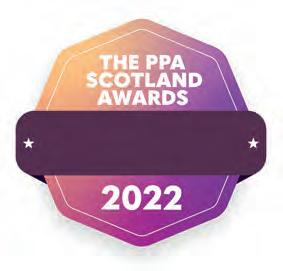

Denise Connelly denise@dcpublishing.co.uk
EDITOR
Emma Storr emma.storr@dcpublishing.co.uk

EDITORIAL CONTRIBUTORS

Jane Ha on Tim Rushby-Smith Alisdair Su ie
DESIGN AND PRODUCTION
Lucy Baillie lucy.baillie@dcpublishing.co.uk
SALES
Marian Mathieson marian.mathieson@dcpublishing.co.uk
ENABLE MAGAZINE www.enablemagazine.co.uk

DC Publishing Ltd, 198 Bath Street, Glasgow, G2 4HG Tel: 0844 249 9007
Get ready for a new issue of Enable Magazine, packed with exciting content
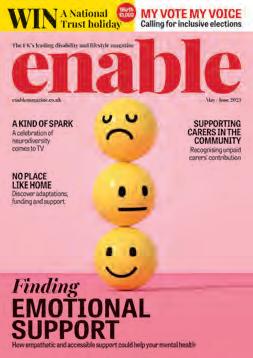


The summer months are just beginning and this issue has a wealth of content to keep you informed, entertained and inspired. On page 8, we meet neurodiverse author Elle McNicoll to talk about her hit novel, A Kind of Spark, and the process of adapting it into a TV series. This issue, we’re pu ing the focus on the importance of community as we spotlight the contribution unpaid carers make on page 13, before learning about fostering on page 32. Reaching out for support from others can be di cult but important: on page 22 we’re sharing tips on coping with anxiety and when to seek help; on page 18, two women share their positive experiences of having Barbie bu surgery; and on page 34, we meet a charity helping to remove barriers to period education. Also inside, we’re sharing Sco ish holiday inspiration on page 26 and an accessible Jersey hotel on page 38; on page 43, Yvonne Cobb shares her latest recipe; and on page 57, we’re going behind the scenes of the campaign aiming to improve voting accessibility. Plus, a disability employment adviser explains their role on page 59; we put the spotlight on barriers to higher education on page 64; and on page 66, we meet the police o cer turned designer launching an adaptive clothing brand. All of this and much more inside.
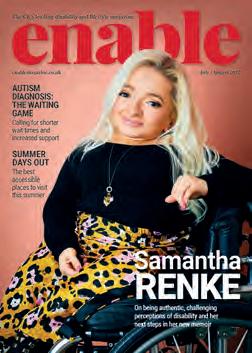
EDITOR’S


40 FINDING EMOTIONAL SUPPORT
We meet a specialist counsellor to discuss the importance of seeking empathetic support.

53 NO PLACE LIKE HOME
Whether you are looking for a new home or want to adapt the one you are in, discover adaptations and the support available to help you make changes.
Emma Storr | Editor editor@dcpublishing.co.uk

3 enablemagazine.co.uk
PICKS... Welcome
WINNER ©DC Publishing Ltd 2023. All rights reserved. No part of this publication may be reproduced or used in any way without prior wri en permission from the publisher. The views expressed in this magazine are not necessarily those of DC Publishing Ltd. The publisher takes no responsibility for claims made by advertisers within the publication. Every effort has been made to ensure that information is accurate; while dates and prices are correct at time of going to print, DC Publishing Ltd takes no responsibility for omissions and errors.
Subscribe to Subscribe today and get the UK’s leading disability and lifestyle title delivered right to your door every two months £15 for one year £25 for two years enablemagazine.co.uk/subscribe Call 0844 249 9007 or visit: WIN A National Trust Holidays voucher worth £1,000 on page 36 Get in touch @enablemagazine VOTED CONSUMER PUBLICATION OF THE YEAR
What’s inside
Interview
8 A KIND OF SPARK
Neurodiverse author Elle McNicoll takes us behind the scenes of her children’s book turned TV series.
Care
10 THE TRUE COST OF CARE
New findings reveal the shortfall in funding that families are picking up.
13 CARERS IN THE COMMUNITY

As Carers Week approaches, it’s time to spotlight local support.
Cover
16 CALLING FOR COMMITMENT
The social care sector is pleading for change after promised funding was halved.
Housing
53 NO PLACE LIKE HOME
18 UNDERSTANDING BARBIE BUTTS
We meet Emily and Rhianne to talk about their experiences.
21 CARE AFTER A CONCUSSION
A charity reveals their tips on caring for a child or young person.

22 PROCESSING ANXIETY
Find helpful tips and advice on understanding and managing anxiety.
34 THE IMPORTANCE OF PERIOD EDUCATION
Explore the barriers to accessible information.
Voices
30 THE HIERARCHY OF SUFFERING
Tim Rushby-Smith shares how discussing chronic pain can become a comparison.

66 THE COMPLEXITY OF DISABILITY INCLUSION
Simon Minty highlights that disability is not a blanket term.
28

4 enablemagazine.co.uk
13 40
46 4 enablemagazine.co.uk
Discover how to make and fund adaptations to your home. story
Cover
Cover story
story
Health
Life
24 ADJUSTING TO A NEW WHEELCHAIR
Wheelchair user and model Georgina Wasdall shares her top tips.



28 AN ADAPTIVE IDEA
Learn about the new adaptive clothing brand ready to dress disabled children.
32 OPENING DOORS TO FOSTERING
This May, consider whether becoming a foster carer is for you.
40 FINDING EMOTIONAL SUPPORT
How disability-led counselling could help your mental health.
43 RECIPE: TURKEY LENTIL BURGERS
Yvonne Cobb shares her latest recipe.
49 THE DIARY
A rundown of events for May, June and July.
50 PRODUCT PICKS
Discover helpful products for home, health and kids.
57 MY VOTE MY VOICE
As preparations begin for the next general election, make your voice heard.
Travel
26 DISCOVER SCOTLAND
VisitScotland showcase some of the best places to go this summer.
38 THE JERSEY HOTEL DESIGNED FOR DISABILITY
Enjoy a worry-free holiday at Maison des Landes.

Motoring
45 THE BIG EVENT IS BACK
This summer, learn about the Motability Scheme at The Big Event.
46 REVIEW: NISSAN JUKE
Alisdair Suttie takes the new car for a test drive.
Employment
59 A HELPING HAND
A Job Centre disability employment adviser explains the specialist support they provide.
61 DECIDING TO DISCLOSE
Jane Hatton discusses disclosing a disability during the recruitment process.
62
Education
64 HIGHLIGHTING BARRIERS TO HIGHER EDUCATION
What challenges await disabled students?
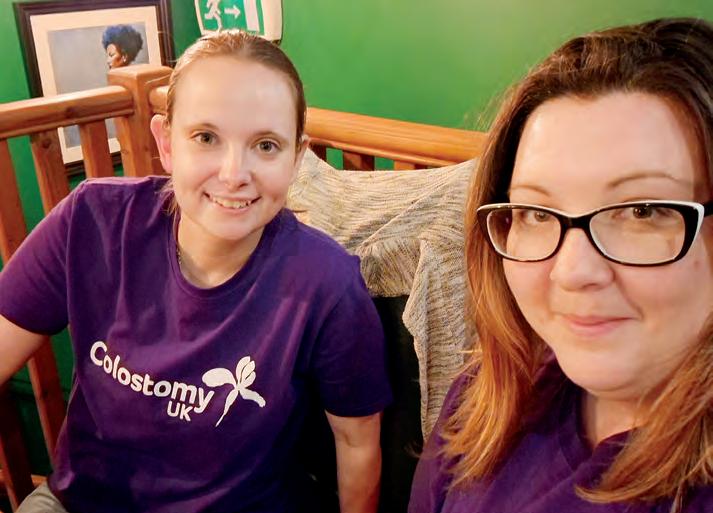
WIN
A NATIONAL TRUST HOLIDAYS VOUCHER AND CLAIM YOUR FREE FAMILY ACCESS PASS ON PAGE 36
5 enablemagazine.co.uk 18
8 24 36
A NURTURING WORKPLACE
A trainee auditor at Audit Scotland shares her experience.
5 enablemagazine.co.uk
story
story
Cover
Cover
Cover story
News
Short breaks scheme extends to 10 new areas


THE UK GOVERNMENT HAS announced that 10 additional local authorities will receive funding as part of the short breaks scheme. The government scheme gives disabled children the opportunities to take part in activities and develop vital skills, with the added benefit of giving families a break from their caring responsibilities. The programme sees councils receive up to £1 million in funding each year to develop new experiences that would
NEW PARTNERSHIP TO IMPROVE ACCESS TO SPORT

THE MOTABILITY
SCHEME and British Wheelchair Basketball (BWB) have partnered to grow grassroots programmes focussed on disability sport, expanding BWB’s current initiative, Inspire a Generation. The new partnership aims to support the growth of wheelchair basketball across the UK and improve access to inclusive sport for disabled people, alongside increasing awareness and understanding of the Motability Scheme. In a recent survey, 78 per cent of respondents said that wheelchair basketball has had a positive impact on their mental health. By removing barriers to sport, the partnership will help more disabled people access a healthier lifestyle.
HATE CRIMES AGAINST PEOPLE WITH A VISIBLE DIFFERENCE RISE
BWB, says: “The Inspire a Generation programme transforms people’s lives by providing participants local access to wheelchair basketball within their own communities, so we are thrilled that through this partnership we will raise awareness of the programme, and together we will ensure that even more disabled people across the UK will benefit from the positive impact of wheelchair basketball.”
NEW RESEARCH FROM charity
Changing Faces has revealed that a third of people with a visible difference or disfigurement have experienced a hate crime, and that there has been an increase in people experiencing hostile behaviour because of how they look. The survey looks at the lives of over 1,000 people with a visible difference. Half of respondents reported experiencing hostile behaviours such as stares and bullying, with younger people more likely to be the subject of the actions. This is in contrast to figures from 2019 which showed just over a quarter of people with a visible difference had experienced a hate crime.
PIC: © HOLLISPHOTOGRAPHY.UK
6 enablemagazine.co.uk
Justine Baynes, the chief executive of enable news
otherwise be inaccessible to disabled children, and covers the cost of providing these activities. Now in its second year, the programme will give funding to new areas including Sunderland, Camden, Derby, Norfolk and Plymouth. Methods already being piloted include a transition group for children with special educational needs and disabilities to develop independent living skills for adult life, and film-making workshops to build teamworking skills.
Actor and presenter Adam Pearson is an ambassador for the charity, he says: “Hate crimes, whoever they target, are despicable and not to be tolerated. Seeing the steady increases in those with a visible difference or disfigurement experiencing hate crimes is frightening.”













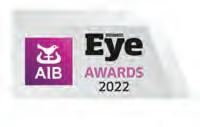
A KIND OF SPARK
In June 2020 during the first coronavirus pandemic lockdown, Elle McNicoll was nervous. Her first children’s book was about to launch, dotted with her personal experiences as a neurodiverse child weaved into a fictional story. Three years later, the book has been adapted for TV, airing on CBBC and BBC iPlayer, and is being shown in countries around the world
AKind of Spark follows Addie, an autistic 11-year-old who wants to memorialise the women once tried as witches in her local village, supported by her friends Nina and Keedie. Addie knows there’s more to their stories, just like there is to hers, and as the plot develops, she thrives on self-advocacy and takes pride in who she is.
“It is about sisterhood, family and history, mystery and adventure and it does of course have disabled characters in it,” explains Elle. “They are passionate and proud, and they have a tonne of agency and autonomy, plus in the show they are played by the most incredible neurodivergent actors.”

ESCAPE
Despite its popularity, A Kind of Spark was never meant to be read by anyone but its creator. Elle was writing a dissertation about the lack of neurodiversity representation in children’s books when it was created.
“I hate academic writing and having to write essays, so I was writing the book alongside for myself as a kind of escape,” admits Elle.
After she graduated, Elle began meeting with publishers about increasing authentic representation of neurodiversity in children’s literature. During this time, she met with Knights Of, an inclusive publisher focussed on bringing underrepresented voices to the forefront of children’s books.
“I said look I’ve done all this research, if you ever need an editor or a consultant on your first autistic book, I’d love to do that and they said we don’t have one, but if you’ve written one we would love to read it and that’s really how it happened,” reveals Elle.
PERSONAL
Originally created as an outlet for Elle, the book is influenced by her own experiences.
“I wrote it for me, for the younger version of me, where the main character has a disability, they are autistic and they are quite neutral about it for the most part,” highlights Elle. “They’re not going on and on about how it’s this horrible thing that they hate, they don’t feel sorry for themselves and they also aren’t saying it’s the most incredible thing that’s ever happened or that it makes them a genius.
“She’s quite neutral about it until she faces real prejudice, then she stands firm and says I’m proud of being autistic and I’m proud of this disability, you are the ones who don’t understand.”
The process allowed Elle to create a character who she both relates to and looks up to, but it was also terrifying to share such personal experiences with the world.
“The neurodivergent aspects are my experience, and I hadn’t ever spoken about them or written them down before,” explains Elle. “Sadly, I think if I had a crystal ball when I first met with the publisher and I knew this show would be on TV around the world, I probably wouldn’t have done it
8 enablemagazine.co.uk
Nina, Addie and Keedie
because it’s very exposing and scary.”

Despite how nerve-wracking this journey has been, Elle has no regrets, and the reward has been giving the world an accurate portrayal of autism and how di erent this can be for each individual.
“It’s how I experience sensory overload, overstimulation, social di culties,” o ers Elle. “There’s also an element of showing that autistic people do have agency, imagination and empathy, and we can be the main character.”
AUTHENTIC
Just four months a er the book was first released, there was already interest to make it into a TV series, but Elle had one condition: the cast and crew had to include neurodivergent people or she would walk away.
A er a host of meetings, the rights to the show were bought by 9 Story Media Group, and it was then greenlit by the BBC. In summer 2022, filming began, and in April 2023, the show dropped in the UK on BBC iPlayer and then on CBBC. The result of Elle’s condition wasn’t just a good show, it was one that deeply resonates with people of all ages.
“One of the things people are connecting to are the autistic actors who play our main characters, and the cast is so peppered with neurodivergent actors, many of them are not playing autistic characters,” reveals Elle.
IMPACT
The impact of the show goes deeper than what’s on screen, it has infiltrated an industry that needs more disability representation both in front of and behind the camera.
“Without authentic representation, we’re cu ing such a huge talented and marginalised group of people out of the creative field,” stresses Elle.
The chance for neurodivergent actors to play neurodivergent characters also gave them agency to bring their own traits to the show.
“The girls were encouraged to bring their own experiences to the roles and one of the sweetest things we’ve seen are kids ge ing in touch on the CBBC Fan Chat saying ‘oh she stims like I do, she moves her hands like I do’,” reveals Elle. “I saw one girl saying ‘she’s just like me, I have this as well’ and the comments are like wow that’s so cool.
“It’s unfathomable to me to be 11-years-old and be brave enough
to say I am autistic and have your peers say that’s so amazing. When I was young that would never have happened, it was an insult on the playground.”

Originally, this was a story for children, but it has become a source of joy for people of all ages, whether they are neurodiverse or non-disabled.
“The book is aimed at eight to 12-year-olds but I get le ers from people in their 70s, people who are in their 40s, people who say this is the book I wanted when I was younger, this is me healing my inner child,” enthuses Elle.
SELF-BELIEF
For Elle, this incredible response resonates with the key messages she wanted to get across: that autistic people are not alone, that they are valued and should have self-belief despite what anyone else thinks.

“My joy has been seeing how many people it has spoken to because it makes me feel less of a fraud, less afraid, less alone,” reveals Elle. “Addie has been underestimated by just about every person she’s ever met: her doctors, teachers, her own parents, yet she knows she has this inner spark that says you’re fine.
“She knows she is smart and

capable, that she is kind and doesn’t need to worry about what other people think. That’s what I hope kids get from the story.”
Now, there’s one question Elle is asked every time she logs on to Twi er or TikTok: when can we expect season two?
“I would love there to be season two, I’m definitely looking to write more in the book world about Juniper,” enthuses Elle. “I guess it all depends how this goes, it would be amazing and I’m all for it.”
FOR MORE INFORMATION
A Kind of Spark by Elle McNicoll is published by Knights Of. Watch the TV adaptation now on BBC iPlayer (www.bbc.co.uk/iplayer).

9 enablemagazine.co.uk
enable interview
It makes me feel less of a fraud, less afraid, less alone
PICS: © BBC / 9 STORY
Elle
AASHFARIA A. ANWAR COVER ARTWORK: KAY WILSON
The true cost of CARE
During 2021/22, local authorities in England were underfunding older people’s residential and nursing care homes by over £2 billion. A review by Care England revealed the concerning gap, following analysis of the average fees currently paid by local authorities and the latest reported Fair Cost of Care rates which were published at the beginning of February 2023.

“The evidence is clear. The care sector is being significantly underfunded by local authorities and requires significant investment by central government,” highlights Martin Green, chief executive of Care England. “The continued funding shortage needs to be tackled head-on.”
FAIR
The Fair Cost of Care was a government-led exercise, created to achieve a shared understanding of the local cost of providing care. The practice was first introduced during autumn 2021 during the same time period that plans for social care reform and a cap on lifetime care costs were revealed.
The policy was created to address councils paying care providers fees that didn’t adequately cover costs, often caused by shrinking budgets and a rise in the people who require care that are eligible for public funding. In total, the government made £1.36 billion available to support councils in implementing and operating this policy up until 2024/25, but the latest figures show that little progress has been made.
ANALYSIS
Across England, just over 178,000 people receive funding for residential care fees or nursing care fees. For these residents, the average difference between what a local authority pays for and the Fair Cost of Care was £218 per week, with this figure increasing to £231 per week for nursing care.
In order to fill this gap and meet the
standard, some local authorities would need to increase what they pay by as much as 32 per cent.
IMPACT
Without proper funding from councils, either residents have to find a way to fill the funding gap for their care, or the quality of care will diminish due to the impact this has on service providers.
“Our analysis indicates that the £7.5bn will not scratch the surface,” reveals Martin. “Care staff pay is directly impacted by fees paid for care by local authorities and those who self-fund and, as such, providers who rely more heavily on local authority funded residents are more restricted in their ability to increase rates of pay without being financially constrained, which has a direct correlation to the recruitment and retention issues
experienced by the sector.”
Alongside the initial Fair Cost of Care funding, the government has dedicated £7.5 billion towards social care over the next two years, but this is supposed to be focussed on creating an additional 200,000 care packages and supporting the early discharge of people from hospital to ease the NHS backlog.
“The core purpose of the Fair Cost of Care exercise, an initiative led by the Government, was aimed at increasing the care fees paid by Local Authorities to ensure the care sector’s sustainability. This reality must now be realised,” concludes Martin.
FOR MORE INFORMATION
Learn more about the Fair Cost of Care and how to check if you are being charged correctly from Care England (www.careengland.org.uk).
10 enablemagazine.co.uk
New findings from the UK’s largest representative body for independent care providers have revealed that local authorities are underfunding older people’s care, leaving families to unnecessarily pick up the pieces and services at risk
enable care
The Bendi Bag –designed
for wheelchair users
Wheelchair users will often have trouble finding an accessible toilet in unfamiliar areas, which can detract from the enjoyment of any outing or event and make life that bit more challenging. The Bendi Bag can help solve such issues. It has been specifically designed for wheelchair users and fits to the shape of the knee.

For more information or to request a sample, please contact the helpline on:
01604 595 696 quoting E/M/J



helpline@manfred-sauer.co.uk
Or visit: www.manfred-sauer.co.uk
We believe that the Bendi Bag can help more people to independently manage their drainage system. It will also allow the user to drink the volumes they require without worrying about frequent emptying or toilet access.

Choose from:
•700ml or 1300ml capacity
•Sterile or non-sterile


•Choice of a lever or slide tap.
Available on prescription in the UK
FREE home delivery service providing a personal service from a professional team.













For your FREE information pack contact 0800 999 5596 or email prescriptions@manfredsauercare.co.uk

RRG Altrincham 281-287 Manchester Road Altrincham, WA14 5PW 0161 972 2724 rrgaltrincham.toyota.co.uk
RRG Bolton 81 Bury New Road Bolton, BL2 2BN 01204 541680 rrgbolton.toyota.co.uk
RRG Bury Bolton Street, Bury, BL9 0EY 0161 765 2135 rrgbury.toyota.co.uk
RRG Denton Alphagate Drive, Manchester Road, Denton, M34 3SH 0161 930 5880 rrgdenton.toyota.co.uk

RRG Macclesfield Hibel Road, Macclesfield, SK10 2AB 01625 704 782 rrgmacclesfield.toyota.co.uk


RRG Rochdale Edinburgh Way, Rochdale, OL11 2PD 01706 863 253 rrgrochdale.toyota.co.uk


RRG Salford Quays 173 Cross Lane, Albion Way, Salford, M5 4AP 0161 727 3134 rrgsalfordquays.toyota.co.uk
RRG Stockport St Mary’s Way, Stockport, SK1 4AH 0161 507 8660 rrgstockport.toyota.co.uk

NEW AYGO X Advance Payment* FROM £0 PURE Discover more independence – exchange your mobility allowance for a brand-new car, through the Motability Scheme. • Available with manual or automatic transmission •Pre-Collision Safety System with Cyclist & Pedestrian Detection •Smartphone integration incl Apple CarPlay™ & Android Auto™ *Model shown is Aygo X Pure (MY22) 1.0 VVT-I Auto at £0 Advance Payment. Subject to availability. Available as part of the Motability Contract Hire Scheme. Please note that a total of 60,000 miles over three years are allowed on the Motability Contract Hire Scheme. Offer valid between 1st April 2023 and 30th June 2023. Motability Scheme vehicles are leased to customers by Motability Operations Limited (Registered Company No.1373876), City Gate House, 22 Southwark Bridge Road, London, SE1 9HB. To qualify you must be in receipt of the Higher Rate Mobility Component of Disability Living Allowance (DLA), the Enhanced Rate Mobility Component of Personal Independence Payment (PIP), the War Pensioners’ Mobility Supplement (WPMS) or the Armed Forces Independence Payment (AFIP) and applications must be made with participating dealers between 1st April 2023 and 30th June 2023. Prices are correct at time of print, are subject to availability and may change. Official fuel consumption figures in mpg (1/100km): combined 54.7 (5.2) to 56.5 (5.0). Combined CO2 113 - 117 g/km. Figures are provided for comparative purposes; only compare fuel consumption and CO2 figures with other cars tested to the same technical procedures. These figures may not reflect real life driving results. All models and grades are certified according to the World Harmonised Light Vehicle Test Procedure (WLTP), which replaces the New European Driving Cycle test procedure (NEDC). All CO2 figures quoted are NEDC equivalent. All mpg figures quoted are WLTP figures. Please visit www.vehicle-certification-agency.gov.uk/fb/wltp.asp or contact your local Toyota Centre for more information.
Carers Week takes place from 5-11 June 2023
RECOGNISING
Carers in the community
Across the UK, unpaid carers are the heart of communities. This Carers Week, it’s time to recognise their vital contribution and highlight both local and national sources of support

enable care
13 enablemagazine.co.uk
The importance of unpaid carers cannot be underestimated, but often their sacrifice is not recognised. People are continually forced to give up work, deplete their savings, and dismiss their social lives when adequate care isn’t available through local authorities. As the annual Carers Week awareness campaign nears, support organisations and unpaid carers are demanding more.
IDENTIFY
A big part of the week is helping carers to identify themselves, and this year, the theme centres around recognising and supporting carers in the community.
“Often people primarily see their role as a partner, a son or daughter, a brother or sister, even a close friend or a neighbour,” highlights Emily Holzhausen OBE, the director of policy and public affairs at Carers UK. “Sometimes that means they don’t seek support for themselves until their health takes a blow or they’re finding it too hard to juggle all of their responsibilities.
“By helping people identify themselves as carers, they can connect with the different support that’s out there. It also provides a focus for all of the organisations supporting carers to really galvanise the community.”
The label of unpaid carer isn’t reserved for people who support a loved one around the clock: it is a person of any age who cares for a friend or family member from just a few hours a week, through to providing full-time care. To be an unpaid carer, you don’t have to live with the person you care for or be the sole person supporting them. Caring could be helping someone with personal care, doing housework or food shopping, taking them to important appointments, or providing company and emotional support.
“Unpaid carers are so important in our society: they are the fabric of our communities and they need to be recognised,” emphasises Emily.
Carers Week plays a vital role in promoting resources and ensuring this message reaches the right people. During the campaign, carers are able to speak directly to politicians, not only demonstrating the sheer number of unpaid carers, but the challenges they face.
PRESSURE
Norman, who is 71, has been the full-time carer for his wife Ros since 2008 and has a deep understanding of the need for more support. Ros lives with MS and dementia and a host of other health problems. Over the years, Norman’s role has advanced: when he first started caring for Ros, he was still at work, but as her conditions progressed, and as Norman experienced health issues of his own, he had no choice but to give up his role as a project manager. The cost of social care also resulted in Norman having to sell the family home.
“If a carer didn’t show up and I was away for work, it became this intolerable pressure, and it got to the point where I collapsed in the street one day,” remembers Norman. “I was working 50 to 60 hours a week then coming home to look after Ros, then doing all of the housework at the weekend: no one can live like that so you have to make a decision.”
Over the years, Norman has found his own approach to caring, helping to maintain Ros’ autonomy when he can.
“There’s an awful temptation to say this is what we’re doing to get things done instead of being person-driven, but my role is to give her as much choice and control as I can,” stresses Norman.
This can be as simple as following her lead if Ros decides she wants to go and get her nails done, but providing round the clock care can also be incredibly challenging.
“I do get some respite which is nice, I get it at night four times a week now so that I can get some sleep because unfortunately this is when she gets really stressed out,” shares Norman.
PROACTIVE
With an understanding of how inconsistent support can be, Norman set out to make a difference in his local community. When he needed help, Norman reached out to carers’ organisations and received support,
but he wanted to use his skills to give back in his community.
Norman launched three events in his local area of Stevenage: an information point to help people identify as carers; a wellbeing event at the local leisure centre that highlights the importance of looking after your health as a carer; and a relay walk around a local lake. Through the events which take place during Carers Week, Norman has fundraised for multiple charities over the years including Carers UK and Carers in Hertfordshire.
“Rather than just give people a leaflet, one of our volunteers will take their information and do the legwork, and ask the appropriate charity to get in touch with them,” explains Norman. “This way, we know contact has been made because when you first come to terms with the fact that you are an unpaid carer and need support, that first phone call can feel a bit awkward. When I reached out for help, I felt like I was failing but now I know I wasn’t, you’re doing the best you can and just need a bit of help.”
FRUSTRATION
Although he has some access to support and the drive to help people in a similar situation, Norman can’t help but feel angry at the current state of social care.
“The frustration is for years we’ve been promised that they’re going to fix social care, but services seem to be getting thinner and thinner,” expresses Norman. “It becomes the expectation that people will take on the extra responsibility, but people can’t cope.”
Norman would always recommend reaching out to carers organisations and charities for support, or to disability-specific organisations for advice on providing care around a particular disability or condition.
“I’ve made the choice to stand by Ros until the day she doesn’t know who I am, and once we get to that stage it will be time to move her to a nursing home,” explains Norman. “But even when people make that choice, they still need access to help and support to survive.”
FOR MORE INFORMATION
Visit the dedicated Carers Week website to find out more about the campaign and how to get involved (www.carersweek.org), or speak to Carers UK about accessing resources and support (www.carersuk.org, 0808 808 7777).
14 enablemagazine.co.uk
enable care
For years we’ve been promised that they’re going to fix social care

CALLING FOR Commitment
order to survive
During April 2023, the UK Government made an announcement that caused ripples through the social care sector, with organisations across the country calling for change. The news saw the government adapt its plans to reform social care, halving the funding that was previously promised.
PROMISE
Just weeks before the announcement was made, the funding was revealed, promising £500 million to develop the adult social care workforce. The offer was aimed at creating opportunities for the workforce by developing their skills and providing additional training to deliver the best quality of care, and was described as the next step in the recovery of the workforce after the pandemic.
This funding was also launched to attract new staff into the sector, and to support the mental health and
wellbeing of people already working in it. Now cut to just £250 million, the commitment has been halved.
“[The] announcement is incredibly disappointing, falling woefully short of the transformational reform to social care the government promised,” comments Richard Kramer, chief executive of disability charity Sense (www.sense.org.uk).
The new reduction in funding wasn’t surprising for social care providers or disabled people’s organisations: they have fought for additional support for years with little response, stressing the detrimental effect that increasing costs and worsening conditions were having on the state of care in the UK. For them, this change signifies more than a funding cut.
MISSED OPPORTUNITY
“The watering down of plans demonstrates a lack of serious commitment to fixing social care,”
stresses Richard. “It will be those who depend on it the most, disabled people, older people and unpaid carers who pay the price.”
In the UK, unpaid carers have been estimated to save the government as much as £530 million per day, and this figure only accounts for the unpaid carers that have identified themselves on carers’ registers or with support organisations.

The funding was aimed at remedying some of the issues currently impacting social care, both in how providers survive and how care itself is given. The current workforce crisis facing the sector was to be the main target of the full funding, an issue which is getting worse as the cost of living increases and the number of people in need of care rises.
With higher bills for energy and food paired with national standards for wages and inflation rising, more than 40 per cent of providers have been forced to close parts of their organisation or hand back care contracts to local authorities in order to cope. Without more support, people who desperately need social care will pay the price.
“Too many disabled people are missing out on the care they need because there aren’t enough care workers with the right skills,” highlights Richard. “Now is the time to ramp up investment in the workforce rather than slashing it and exacerbating the workforce crisis.”
With no end in sight for the causes of strain for social care, action is needed to ensure providers can survive, and that people can access essential care.
FOR MORE INFORMATION
Learn more about the impact of the workforce crisis from Care England (www.careengland.org.uk)
16 enablemagazine.co.uk
As the UK Government adapts its promise of additional social care funding, organisations in the sector are pleading for change in
enable care
Designed for full discretion
The worry of drawing unwanted attention to your stoma bag can be exhausting. But what if going about your day with confidence were as easy as choosing a discreet stoma bag?


Available in drainable, closed and urostomy options, the SenSura® Mio range of stoma bags and baseplates is designed to follow body movement and provide a secure fit for individual body shapes.





With quiet material, less visibility and odour control, SenSura Mio is designed for full discretion so that you can take control of when your stoma is and is not the subject of attention.


Yes, please send me a free product sample
We will always call you to make sure you get the right sample before sending it.

Less visibility
Unique grey colour is designed to be invisible under clothing

Quiet material
Designed to be quiet without compromising performance
Odour control
Unique full-circle filter reduces the risk of smells escaping from the bag
Scan me to find out more
By filling in the coupon, one of our Clinical Assistants will contact you to discuss which is the right solution for your needs before sending any free samples. Simply post back to FREEPOST COLOPLAST (no further postal address details or stamp required) and we’ll be in touch. Alternatively, visit www.coloplast.to/discretion or scan the QR code above with your smartphone.
First name
Date of birth
Date of stoma surgery Telephone


Signature

By providing your personal and sensitive personal data, you are consenting to Coloplast Limited that we may process and store your data for the purposes to fulfil your sample request, to keep you informed about it and follow-up via phone, text, or post, and to improve our products and services. We may refer you to healthcare professionals if needed. We may share your data with our sub-vendors when necessary to fulfil the request and transfer data outside the EU to support our business operations. You may withdraw consent at any time without ramifications, by writing to privacyrequests@coloplast.com or calling us at 0800 132 787. For more information, please visit our privacy policy for consent at coloplast.co.uk/en-GB/global/privacy-policy-uk/
Our Clinical Services team is rated ‘Outstanding’ by the Care Quality Commission (CQC) who independently regulate the care our teams provide.
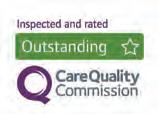
The Coloplast logo is a registered trademark of Coloplast A/S. © 2023-04. All rights reserved Coloplast A/S. PM-26792 OC_EVERYSIDE_ADVERT_ENABLE
Surname
Email
BARBIE BUTTS
Making the decision to have proctectomy surgery can be life-changing.
Commonly referred to as a Barbie bu , the surgery involves removing the rectum and anus and sewing them up permanently. O en made when a colostomy or ileostomy reversal isn’t viable or the best option, it can be a hard choice to make, but for people with conditions like Crohn’s and colitis, it can also be a lifeline.
DECISION
Emily was diagnosed with Ulcerative Colitis in 2015 and quickly had to start taking a host of medications whilst spending time in and out of hospital. A er first ge ing a stoma around six years ago, Emily then made the decision to undergo proctectomy surgery.
“At my worst point I was on 30 tablets a day and having infusions at the

hospital, I had tried loads of di erent things and nothing really worked, I went in for a routine procedure and I didn’t come out of hospital,” remembers Emily. “They did my surgery to have my stoma in 2017, but I only agreed to it if I could have it reversed. Five years later, it didn’t get reversed: I had everything taken out and sewn up.
“In those five years I still su ered with my colitis even though I had my large intestines out, I still bled and was in pain, just not as bad as before, so that’s why I made the decision.”
Unlike Emily, Rhianne had a separate procedure before deciding to have Barbie bu surgery which results in a permanent stoma. Rhianne was diagnosed with a genetic condition called Familial Adenomatous Polyposis (FAP) in 2010 which causes polyps to grow in the colon and comes with a high risk of developing colorectal cancer.
“They did a complete colectomy at first, so they took out my colon and
le me with a J-pouch,” recalls Rhianne. A J-pouch is when the end of the small intestine is shaped into a pocket to store and pass stool. “I had the J-pouch for about 10 years but then it started to fail, plus polyps started to grow again.

“There were three options: have the polyps taken away, have the pouch remade which has quite a high failure rate, or go for the stoma and a Barbie bu .”
Last August, Emily and Rhianne met a er they both started a ending the same local support groups, BOTS, which stands for bums on tums, and quickly became best friends. Emily had her operation just weeks before in July, while Rhianne had hers during April 2022.

“You get a lot of weird looks when you say Barbie bu ,” laughs Rhianne. “If you’re using the medical terms all of the time it’s nice to be able to use so er words to talk about it.”
EXPERIENCE
A Barbie bu can’t be reversed, and with this in mind, both Emily and Rhianne did extensive research before agreeing to the procedure.
“It took me about four years to come to a decision,” admits Emily. “I made sure I spoke to a lot of people who had been through it.”
Rhianne found that there wasn’t much out there to tell her exactly what would happen, and o en, hospitals have contrasting approaches to the surgery.
“Every surgeon does it di erently in how they sew you up or how they treat
18 enablemagazine.co.uk Understanding
A permanent change to the body, a Barbie bu can be a daunting prospect, but the surgery can be life-changing for the be er. We meet Emily and Rhianne, The Stoma Girls, to learn about their experiences
Emily
Emily and Rhianne
you a er it, so you never got that concrete idea of what would happen” explains Rhianne.
A er having the surgery, they both had a positive experience with few issues during the recovery process. Emily was up walking around the ward the next day, while Rhianne didn’t experience much discomfort until her scar tissue started to tighten months later. When things were tough, having each other to lean on meant there was always someone to speak to.
“You can do anything you did before, you just have to take a li le bit more caution,” advises Emily. “I probably do more now than I did before because I was so poorly before it.”
As well as working, Emily volunteers with Colostomy UK, the Ileostomy Association, and Crohn’s and Colitis UK.
“Sometimes it feels a bit tighter in that area but there’s nothing that stops me from doing anything,” adds Rhianne. “Having the Barbie bu has enabled me to live life again rather than being constantly worried about what’s going on, ge ing to a toilet, constantly being in discomfort.”
FINDING SUPPORT
When the duo joined the BOTS support group, they were by far the youngest people there, and a er struggling to find information in the lead up to their own surgeries, they decided to take action.
“We wanted to be there for the young people in our area because they can’t always a end meetings if they’re working,” reveals Emily. “We also wanted to put some positive stu out there because it’s not always that bad.”
Emily and Rhianne first set up a support group on Facebook for people in their local area, The Stoma Girls, and then they started to think about the next steps and decided to start a podcast of the same name. So far, the episodes have focussed on what lead to their stomas; operations and the early days of recovery; leaks; food and drink; and of course, Barbie bu s.
“We’re still small and it’s early days, but it’s going well so far and everyone has been really positive about it,” shares Emily.
Their audience may be small right now, but the impact on individuals is big. Through the Facebook group,
one woman realised she could get more products on prescription than she initially thought.
“People finding out there’s things accessible to them just by us talking or posting about it, it feels good because you’re helping someone,” adds Rhianne.
ADVICE
Emily and Rhianne have built up an arsenal of advice to share with people who are currently considering the surgery or are in the recovery stage.

“My top tip for healing if you’re a lady is when you go to the toilet and urinate, you’re urinating on all your dressings down there which doesn’t help and it stings your wounds, so get a Shewee, they are the best thing ever,” emphasises Emily.
Emily also recommends using a foam cushion during recovery, wearing elasticated, high-waisted trousers that work with a stoma, and using reusable bed pads to protect your ma ress from any leaks. Above anything else, their advice is to reach out for help and support every time you need it.

“One thing I did was take each day as it comes, don’t think about the end goal,” o ers Rhianne. “If you have any concerns make sure you go and get help, it can be scary if you feel alone.”
Armed with their experiences, The Stoma Girls want to make one thing clear: it does get be er, and this experience can be positive.
FOR MORE INFORMATION
The Stoma Girls podcast is available via Spotify, or search The Stoma Girls on Facebook to join the support group.
To access support and advice, contact specialist organisations:
Colostomy UK
www.colostomyuk.org
0800 328 4257

Ileostomy and Internal Pouch Association

www.iasupport.org
Crohn’s and Colitis UK
www.crohnsandcolitis.org.uk
0300 222 5700
19 enablemagazine.co.uk enable health
Rhianne and her dogs
Rhianne and Emily
Having the Barbie butt has enabled me to live life again rather than being constantly worried
Most children and young people make a full recovery after a head injury, however, some experience longer-term difficulties.


















That’s where our website can help.









Bumps Happen is an online resource for parents and carers. If your child has had a head injury, or you’d just like to know more, visit Bumps Happen for help and guidance.



thechildrenstrust.org.uk/bumps-happen





Charity registration number: 288018. TCT_1663. 04/23























































Scan here
Intelligent Braking System Intelligent Cruise Control Motion Direct Control
FREEDOM
Care after a concussion
Research suggests that children and young people can take three times longer to recover from a concussion than adults. Here, The Children’s Trust share tips on caring for a child or young person following a concussion
Each year, around 1.4 million people in England and Wales attend emergency departments with a recent head injury, and it is estimated that between 33 per cent and 50 per cent of these are children under the age of 15. Children and young people are thought to take longer to recover from a concussion than adults, and to help people supporting them, The Children’s Trust have developed a new resource: Bumps Happen.
UNDERSTANDING SYMPTOMS
A concussion is a mild Traumatic Brain Injury (mTBI) which can be caused by a blow to the head or something that makes the head and brain move quickly in different directions. Common causes are falls, sports injuries and road traffic collisions.
Often, there are no immediate signs of concussion: symptoms can appear a few hours or even days after the injury and usually include headaches, confusion, nausea, changes in mood, difficulty with concentration and memory, and cognitive fatigue.
In the immediate aftermath of a child sustaining a head injury, seek medical advice by contacting your GP, calling 111, or in an emergency, calling 999. In the days that follow, it is important to understand these symptoms and how to provide support.
THE FIRST 24 HOURS
During the day following a mTBI it is important to provide a calm and quiet environment, and to speak to children in a calm voice. A head injury can affect the way children process what’s going on and they may feel overwhelmed if there is a lot happening around them. Give

your child or the person you care for time to rest in order to heal, during this time they may have difficulty remembering or thinking clearly.
You may have to remind them what has happened, and if they have questions, answer them with simple and direct answers where possible. Try to make sure there isn’t more than one thing happening at a time, and if you can, limit the amount of screen time, music, noise and movement going on around them.
THE FOLLOWING DAYS
In the days following a concussion, some time off school can be of benefit to a child or young person, along with limiting contact sport and excessive physical activity. A GP may advise that they need medication for their symptoms if they are experiencing pain. When they are feeling better, plan a gradual return to school and activities.
During this time, continue to observe your child for any changes
and don’t hesitate to seek guidance if you need it. If you are unsure of what to do, or you spot new symptoms, contact your GP or call 111 and explain your concerns, or visit Bumps Happen to read more about signs to look out for and action you can take to support your child’s recovery.
FOR MORE INFORMATION
To access more Bumps Happen guidance, or to find out more about The Children’s Trust, visit www.thechildrenstrust.org.uk /bumps-happen
21 enablemagazine.co.uk
enable health
PIC:
If they have questions, answer them with simple and direct answers
© THE CHILDREN’S TRUST
PROCESSING
Anxiety
With increased pressure in everyday life, anxiety can become a big problem, preventing you from carrying out basic tasks. Understanding anxiety and reaching out for support can help
Anxiety is a normal reaction that everyone feels in moments of fear or nervousness, even when experiencing something new and exciting, but when anxiety becomes a common occurrence, you should
look to implement solutions or seek support to help you cope. Whether you are experiencing heightened levels of anxiety for the first time or it is something you have been dealing with for years, support could be an anonymous phone call away.
22 enablemagazine.co.uk
PRESSURE
Pressures affecting everyone, most prominently the cost of living crisis, are having a detrimental effect on the disability community. At this time, it’s essential to look after your mental health and to reach out for support when necessary. Niamh Nicholson is the partnerships and helpline coordinator at Anxiety UK, a charity helping people affected by anxiety, stress and anxiety-based depression.
“Everything going on will affect people who have never experienced anxiety before, but also people who have,” stresses Niamh. “It started in the pandemic where people began to experience physical and psychological symptoms of anxiety, but then there were also people who already have anxiety which is now exacerbated. The cost of living crisis is going to add to those concerns, even the war in Ukraine will because world events really do have an impact on people’s general anxiety levels.”
When anxiety becomes a barrier to everyday life, affecting how you carry out work or daily tasks, it’s time to access solutions and find support.
“The first thing is being able to recognise anxiety and know that it’s going to be ok,” offers Niamh. “We encourage people to have regular check-ins with themselves, thinking about how you are feeling, if you’ve got a lot going on at the moment, if you have a lot of concerns or there’s a big list of things that you are managing. Think about whether you need a bit of extra help, and if you do, then the next step is reaching out for support.
“It can also help to focus on the small things we can do ourselves to feel better in our day to day life.”
REACHING OUT
Seeking support and advice can feel scary at first – it might even add to how you’re feeling – but it can transform how you feel once you access it. The Anxiety UK helpline is a free, impartial service that anyone can access when they want to take the first step.
“Our helpline is answered by friendly volunteers who take calls from around the country,” explains Niamh. “People can ask us for advice and guidance on anxiety, stress, even specific phobias, and it can be about themselves or tips
for helping a loved one.”
A short conversation with someone who understands how you are feeling can make a big difference in itself.
“We’re a user-led charity, so we have some experience of anxiety ourselves whether directly or in caring for a loved one with anxiety,” reveals Niamh. “People who have that experience are best placed to support others: you know you’re going to speak with someone who has a level of understanding as well as compassion, because it can be a really isolating experience.
“Just speaking to someone can be really therapeutic in itself.”
When you call a helpline like this, volunteers will have a discussion with you about how you are feeling, they can then offer tips and guidance on what might help or what further support you should access.
“You might just need a bit more information on how to look after your wellbeing in general,” advises Niamh. “That could be some breathing and relaxation exercises, making sure you are exercising and eating well, that you’re sleeping well and getting out for fresh air. Even just learning about anxiety can break down a big barrier to knowing what’s happening within your body.
“Accessing a support group can be a really therapeutic way to share your thoughts and feelings with likeminded people in a safe space, and if you feel like you need that bit of extra support then working with a therapist can help you form an action plan on how to manage anxiety.”
There are a whole host of support methods to help you cope with anxiety, but often a simple approach can be highly effective.
“When you feel anxious you can forget about the basics, simple things that can help you look after yourself,” highlights Niamh. “When did you last
spend some time outside? I know for myself that during colder months I really struggle to leave the house, especially if I’m working from home, but then when I do go out it does a world of good and clears my mind.”
Even light exercise outside, like walking or gardening, can help clear stress hormones that have built up in the body, aiding both the physical and psychological symptoms of anxiety.
“By doing these simple things like going for a brisk walk or eating well to ensure you have the energy to deal with everything, getting a good sleep, they all help you to process the stress and worries of the day,” explains Niamh. “Nature is freely available to all of us and it really does have a positive impact on our wellbeing.
“Remember to take things at your own pace and that you are completely in control of your own journey, but even these small things can help.”
HELPING OTHERS
If you are caring for a loved one, or you spend a lot of time with a friend or family member you are close with, and notice they are experiencing more anxiety, starting a conversation can help.
“You can open the conversation with something as simple as ‘is everything ok?’,” advises Niamh. “Ask how things are and remember it’s ok to dig a little deeper, mention that you know they have a lot going on at the moment.
“Just being there for them can help, but let them open up in their own time: we can’t force someone to get help if they’re not ready yet. Be supportive but also be patient.”
Non-judgmental and free support is always close by whether you want to access tools yourself, or in helping a loved one cope with anxiety. By checking in with yourself, implementing simple solutions and, when necessary, reaching out for help, anxiety doesn’t have to rule your everyday life.
FOR MORE INFORMATION
Access resources from Anxiety UK online (www.anxietyuk.org.uk) or contact the helpline by calling 03444 775 774, or by texting 07537 416905
23 enablemagazine.co.uk enable health
It can also help to focus on the small things we can do ourselves
Adjusting to a new wheelchair
Shopping for and purchasing your first wheelchair, or a new wheelchair, is an extremely personal process. Ensuring you do your research, ask questions and hear from other wheelchair users can help make this transition easier.
Georgina, who has myalgic encephalomyelitis/chronic fatigue syndrome (ME/CFS), got her first manual wheelchair when she was 14, and then changed over to an electric wheelchair when she was 21. She first thought about using a mobility aid when exploring ways of ge ing out of the house, and when she no longer had the physical energy to walk any distance, using a wheelchair become a reality.
“I resented the whole idea as I felt more disabled than ever before, like I was surrendering to my condition,” admits Georgina. “It took me a long time to accept that a wheelchair was going to be a good thing. Not a hindrance, not giving in to the condition, it would be freedom.
“My wheelchair has now made me more liberated and independent than I could ever have imagined.”
CONSIDERATIONS
If you are about to start the search for a new wheelchair, there’s a lot to think about.
“The things I consider are comfort; how much support it gives; style; transportability; if it’s safe on airlines; cost; general size; the surfaces it can travel over; ba ery life and weight,” o ers Georgina.
Georgina’s main advice is to test drive the wheelchairs you are interested in, allowing you to get a feel of the chair.
“In my first moment in my latest electric wheelchair, my entire body language changed, I was genuinely so









happy,” shares Georgina.
This can be an exciting time, finding out what is available and what suits your needs, but it can also come with some drawbacks.
“There is a limited range of options available on the market for the younger generation,” reveals Georgina. “My other concerns would be comfort and ease of use. Finding a wheelchair that’s within your price point and ticks the boxes you need is quite di cult, so when possible, take your time.”
ADJUSTING
Once you decide on the right wheelchair and you receive it, there might be an adjustment period as you get used to it, and it’s normal to feel anxious during your first outings.
“Don’t put any pressure on yourself, it’s going to feel weird and new and will probably take a while for you to feel comfortable and accept this new change,” explains Georgina. “However, you will get there. It will be worth it, and you will be rocking it.
“Things will be di erent yes, but you’ll be the same person, nothing will change that. It’ll become a part of you but not everything you are.”
In moments of doubt or frustration, Georgina likes to list all of the things that using a wheelchair enables her to do, how it’s going to help manage her pain and her mobility. Most importantly, remember you are making this decision to best suit your needs, and you are the only person who can truly understand these.
FOR MORE INFORMATION
Georgina shares more of her experiences as a wheelchair user and posts about accessibility on Instagram @georginawasdall



24 enablemagazine.co.uk
enable life
If you are shopping for and using a wheelchair for the first time, the wide range of choices on the market can feel overwhelming. Here, wheelchair user and model Georgina Wasdall shares her tips for choosing a wheelchair and adjusting to your new mobility aid
Georgina









NTS DB Ad.indd 1 24/04/2023 12:01
WHY SCOTLAND SHOULD BE NEXT ON YOUR SUMMER HOLIDAY WISH LIST
When it comes to making memories with your loved ones, holidays are up there as one of the most special events during the year. But before you can take that trip and enjoy yourself, there’s some planning to do first! One of the first things you need to decide is where do you want to go?
To make choosing your holiday destination a little easier, we’ve selected our top Scottish locations, all with superb things to do – as well as excellent accessibility credentials.

Glasgow
With its vibrant atmosphere and friendly people, Glasgow is a top choice for a city break in Scotland.
Head over to the University of Glasgow buildings in the city’s west end to explore the fascinating exhibits in The Hunterian Museum, with a diverse range of exhibits such as the history of medicine and zoology. See Roman artefacts from the Antonine Wall (a UNESCO World Heritage Site), medical instruments used by famous figures such as James Watt and one of the greatest collections of coins and medals in the world.
The Glasgow Science Centre is a fabulous day out for all the family. Get stuck into the hundreds of interactive exhibits in the science mall, explore the cosmos in the planetarium and see a film on Scotland’s biggest screen at the IMAX cinema.
If you’re looking for somewhere to stay in the city, the Crowne Plaza Glasgow is a great option. This sleek hotel is located right next to the Scottish Event Campus, ideal if you want to take in a gig. The hotel boasts accessibility features, including a ceiling track hoist, accessible accommodation and assistive listening.

26 enablemagazine.co.uk
The Hunterian Museum
The Glasgow Science Centre
Aberdeen and Aberdeenshire
In the north east of Scotland, the city of Aberdeen is surrounded by lush countryside and spectacular coastline, making it the ideal location for combining city sights and fresh country air.
In the city, head to the Aberdeen Maritime Museum situated at the historic harbour. Here you can find out about the seafaring history of the area and see intriguing objects, including beautifully detailed ship models dating from 1689 to the present day.

Heading out of the city, in the town of Alford, you’ll find the Grampian Transport Museum. Explore the fascinating transport exhibits, including chariots from the 1800s, stage coaches, fire engines and cars.

An excellent accommodation option in the area is Crathie Opportunity Holidays which is located in the beautiful Cairngorms National Park in historic Royal Deeside. These charming, purpose-built accessible holiday co ages have a ceiling track hoist available, and have been carefully designed with access for all as the number one priority.
Edinburgh and The Lothians
Scotland’s capital city Edinburgh is home to plenty top-quality things to see and do, and lots of interesting history to discover.

Head to the National Museum of Scotland to explore the galleries and to learn about the fascinating exhibits. See beautiful clothes in the art, design and fashion gallery, learn about animals from around the world in the natural world gallery, and discover Scotland through the ages in the Sco ish history gallery.
Take a trip out to beautiful East Lothian – known as Edinburgh’s coast and countryside – to visit Glenkinchie Distillery, a working whisky distillery. With its traditional red brick buildings, this distillery oozes charm and will transport you back in time. Take a tour to find out how whisky is made.

If you’re looking for accessible accommodation in Edinburgh, look no further than Wilde Aparthotel. Located in the heart of the city, at the famous Grassmarket, this stylish aparthotel is in an ideal spot for you to explore the Royal Mile and the famous a ractions along it.
South of Scotland
With its beautiful scenery and great a ractions peppered throughout the land, the south of Scotland is a gem.

In Dumfries and Galloway, head to Gretna Green to see the place where runaway couples would flee to get married in days gone by. Take a tour of the Famous Blacksmiths Gretna Green Experience to see the acclaimed marriage anvil and a er explore the department store for a spot of shopping.
Over in the Sco ish Borders in the east, take a trip to Abbotsford to explore the picture-perfect home of Sir Walter Sco , one of Scotland’s greatest writers. Built in the 19th century, the house and rooms are just like Sco le them, so you really will be transported through time as you explore the house and the surrounding grounds.
If staying in a stunning historic country house sounds right up your street then be sure to check out Cringletie Hotel, near Peebles in the Sco ish Borders. The hotel boasts a range of facilities that are rare in such a historic building, including ramps and a platform li . The hotel was also the recipient of the prestigious Catey award for accessibility.
The a ractions included in this article will have detailed accessibility guides available in May. VisitScotland is working with AccessAble to create detailed access guides for venues in different regions of Scotland including Edinburgh and The Lothians, Aberdeen and Aberdeenshire, Glasgow and the South of Scotland. Go to AccessAble.co.uk or VisitScotland.com/Accessible to help you plan your next break.




27 enablemagazine.co.uk enable advertorial
Glenkinchie Distillery
Abbotsford
Aberdeen Maritime Museum
PICS: © VISITSCOTLAND / LUIGI DI PASQUALE / PETER DIBDIN / PRIMAGING / KENNY LAM
AN ADAPTIVE IDEA
A er entrepreneur
brand, Adaptive Clothing UK

Before she set her sights on launching a business, Helen was a police officer, but while on duty in 2010 she was assaulted and hit on the head multiple times. This left her with hemiplegic migraine disorder causing blackouts and seizures, and hemicrania continua, causing pain in her head and face that varies in severity. Living with these conditions gave Helen an understanding of the support people can require while dressing.
“When I have those episodes, I have paralysis down the right-hand side of my body and that can last minutes to days,” reveals Helen. “My husband and daughter have to assist me when I struggle like that.”
IDEA
Alongside her own experiences, Helen’s niece is autistic and her friends also have disabled children. She knew that there was a gap in the market that needed filled to make dressing easier for
disabled children alongside parents and carers.
Helen was no stranger to adjusting clothing, around a decade ago she made her first adaptive piece: a swimsuit for her eldest daughter that opened like a vest to make changing nappies easier. It wasn’t until three years ago that she decided to turn her ideas into a business.
RESEARCH
“I started doing market research to find out what I could do to make dressing less painful for children or to help carers, and it just grew from there,” explains Helen. “I asked a bunch of questions and narrowed it down to people’s main problems which were stress, pain and time. That’s how I’ve adapted the clothing, to try and give them those three things back.”
Adaptive Clothing UK’s first range is due to launch this spring, with a percentage from every sale donated to the charity Just 4 Children (www.just4children.org).

“There are so many people with di erent needs out there, we’ve tried to accommodate that as much as possible,” stresses Helen. “The beauty of it is that this clothing can be worn by anybody because we’re concealing the adapted areas, but it is designed with
young disabled people in mind.”
RANGE
To begin with, the range will cover from 0-3 months, all the way up to 12 years depending on the item, and will include swimsuits, a sun-safe suit, onesies, jogging bo oms, leggings and more, all with di erent adaptive features.
“There’s flat lock stitching with everything, there will be no labels, it will all either be printed or hidden,” reveals Helen. “The onesies open fully so you can lie them flat on the floor and put the baby or child on top and just close it around them, and the poppers are all nicely spaced so there’s access for feeding tubes or other equipment.”

Helen has hopes to grow the range in the future, expanding into adults’ clothing, but for now, she’s just happy that the launch of her new company could help disabled children and young people.
“It’s really exciting to know that I’ll be launching something that can hopefully have a positive impact for these children,” emphasises Helen.
FOR MORE INFORMATION
Follow along as Adaptive Clothing UK grows by visiting their dedicated website www.adaptiveclothing.uk
28 enablemagazine.co.uk
Helen Clawson asked parents and carers what they needed to aid in dressing their children, the feedback became central to Helen’s new
enable life
PICS: ©KJM CHESHIRE PHOTOGRAPHY

Tim Rushby-Smith
Originally from London, writer, artist and paraplegic Tim Rushby-Smith is now based in Australia. He is the author of two books: Looking Up and Beyond the Break.

Follow Tim on twitter @trushbys
THE HIERARCHY OF SUFFERING
Ihad two conversations recently on the subject of chronic pain which, though on face value were opposites, actually converged.
COMPETITION
The first was with a family friend who was describing the arthritis in her hand and associated pain which was preventing her from sleeping. She suddenly fell silent and then, after a short pause, she said: “Of course it’s nothing compared to what you have to live with every day.”
The second conversation was with someone from my basketball team
who also has a spinal cord injury. He is barely out of his teens, and has responded to his injury with a glut of bravado which is a mixed blessing. It has given him the determination to really push himself and to set high goals for the future, but at the same time, this has made every conversation feel like a sparring session. When he asked me how I was, I responded that I was having a bad day, pain-wise.
He asked: “Do you take anything for it?”
I listed all the meds I currently take, as well as those I have tried previously.
“Yeah well,” came the reply. “My doctors told me that I must have an exceptionally high pain threshold.”
Hmmm. It seems anything can be a competition…
MEASURE
The conversational convergence was the comparison of pain. It is notoriously difficult to research pain, as subjectivity makes it very difficult to empirically measure pain levels. We know that different factors -
environmental, emotional, distraction and more - influence how much pain we feel, but what we can never know is what someone else is actually feeling.

All we can really do is deal with what’s on our own plates. Someone else suffering more than me does not lessen my pain. Yes, knowing that others are dealing with similar issues can make me feel less alone, but direct comparisons are not helpful. Instead, I am reminded of that awful platitude about there always being someone ‘worse off than you’ (even more infuriating when it comes coupled with the advice to ‘live each day as if it’s your last’. The financial trouble I could get into in just twenty-four hours doesn’t bare thinking about, let alone any other mayhem).
Over time I have come to realise that there is a powerful technique we can use to show sympathy or empathy to another person without feeling the need to make comparisons. I’m not always perfect by any means, but I feel like I am making a difference when I remind myself to just listen.
30 enablemagazine.co.uk
enable voices
I am making a difference when I remind myself to just listen
In this issue’s column, Tim discusses how talking about chronic pain can often feel like a comparison, but stresses the importance of listening to have empathy
Award-winning Wheelchair Accessible Car


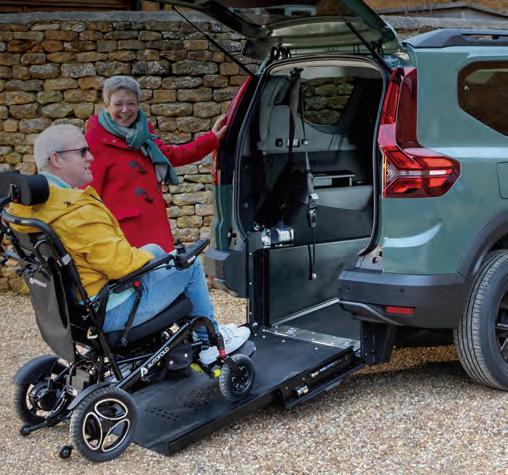
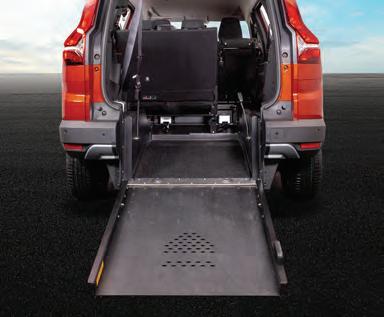
• Rear wheelchair passenger sits near other mid-row passengers

• UK’s only Wheelchair Accessible Car

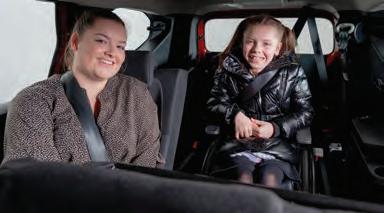



• Based on the award-winning Dacia Jogger


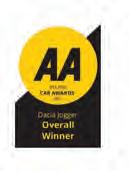
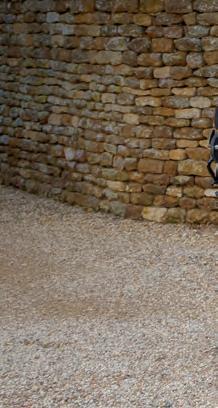

• Space for up to six people* with flexible seating options

weeks.
Scheme
private purchase. Finance available. Contact us for a home demonstration. W sirusautomotive.co.uk T 0121 505 7777
Now available to order. Delivery in approx. 12
From £3,995 Motability
Advance Payment, £27,995
for you and your family
• Two ISOFIX points for child-seats *Depending on wheelchair type and weight. Designed
Opening doors to FOSTERING
Almost anyone can become a foster carer, offering support and a welcoming home to a young person. This May, Foster Care Fortnight is highlighting resources and celebrating the power of communities
From 15 to 28 May, people around the country will mark an important date in the calendar: Foster Care Fortnight. The event is a celebration of foster carers, delivered by leading fostering charity, The Fostering Network. The event raises awareness of the need for passionate individuals who can make a difference to the lives of children and young people.
You might be surprised by the range of people who are able to be a foster carer: you can apply if you are at least 21-years-old; have a spare bedroom big enough for a child or young person to live in; are living full-time in the UK, in your own home or with a secure rental agreement; are willing and able to care for a child or young person, sometimes on a full-time basis. You also don’t have to be in a relationship to apply. When considering becoming a foster
carer you should think about your own health, home, experience with young people, and your financial security, but a disability or long-term health condition isn’t necessarily a barrier to fostering.
COMMUNITIES
The impact of fostering and the support available stretches much further than the individual foster carer or foster family who are welcoming a young person into their home. Foster carers themselves, social workers, fostering-friendly employers, friends and family members are all making a difference as part of the community around a foster carer.
The year’s theme, Fostering Communities, has been extended from 2022 after a wave of positive feedback and the opportunities this presented to shine a light on fostering. Everyone who is part of the fostering process, or who
supports a foster carer, can get involved in the week, sharing their experiences using #FosteringCommunities on social media, reaching out for advice from people in their community, or reading other people’s experiences online.
INFORMATION
The wealth of information that is highlighted during Foster Care Fortnight isn’t just available during these two weeks, it can be accessed year-round. The All About Fostering resource from The Fostering Network (www. allaboutfostering.org.uk) provides details and advice on the diversity of people who can foster and what skills and qualities people might bring to the table, the process of becoming a foster carer, along with a blog featuring real people’s experiences.
The website allows you to search for your local fostering service who may be able to provide more information if you are interested in starting this process. Organisations like FCA Scotland (www.fcascotland.co.uk), the National Fostering Agency (www.nfa.co.uk), Barnardo’s (www.barnardos.org.uk) and UK Fostering (www.ukfostering.org.uk) all have helpful advice for people who are considering becoming a foster carer.

If you reach out for information, there is no pressure to continue the process if you think it isn’t the right path for you, but if you decide to become a foster carer, this support will continue every step of the way.
FOR MORE INFORMATION
Discover more about Foster Care Fortnight online through The Fostering Network (www.thefosteringnetwork.org.uk).
32 enablemagazine.co.uk
enable life
Reliable Outdoor Rollator
A rollator is a mobility aid that greatly enhances your autonomy. The Trionic Veloped rollator gives support and relief during any outdoor adventure.


If you find yourself experiencing balance issues, consider investing in an efficient walking aid to help with unsteadiness.

Trionic’s terrain-taking model, the Veloped, can overtake curbs, rocks, roots and other obstacles without losing ground contact. The sturdy design and air-filled tyres minimise vibrations and offer a smoother ride on gravel, grass, cobblestone and forest tracks. Treat yourself or a loved one to one of the most reliable walking aids on the market!

black 11 all white 11 all CMYK 11 all Call: 0800 0730 418 Visit: www.hackney.gov.uk/fostering Email: fostering.recruitment@hackney.gov.uk For more information Are you thinking about fostering? Whether you just want to know more about fostering or you’re ready to start your journey, speak with us today and see how we can help. You don’t have to live in Hackney to foster with us, and you don’t need to quit your job. Award-Winning Grips Slide the Seat Forward
Call us now on 0330 818 0867 or visit trionic.uk/enable to read more and order or get your free catalogue.
Trionic Climbing Wheel Trionic Veloped Trek 14er
0330 818 0867 • www.trionic.uk/enable
THE IMPORTANCE OF Period education
Without accessible and adapted information, disabled people are le without an understanding of what is happening to their bodies during puberty, of the support available, and the range of products that could be suitable for them. Information given in educational se ings isn’t always enough and o en isn’t tailored to account for disabled people’s needs, and so parents and carers are integral to starting this conversation, but it can be a daunting topic to approach.
Conscious of the barriers that continue to exist both for disabled people and their parents and carers, organisations are sharing advice, information and products to help.
HEALTH
One of these organisations is Freedom4Girls, a charity fighting period poverty and supporting people who menstruate by challenging stigmas and taboos. Sarah Priestley Turner works with the organisation, helping to support people with education, advice and free products.
“We can’t look a er ourselves and our health, or the health of our loved ones, unless we have knowledge and awareness,” highlights Sarah. “A lack of education can be quite dangerous: it’s really important to understand
what’s normal and what isn’t when it comes to menstruation.
“We need girls to learn about their bodies from puberty right through to menopause, and currently provision and awareness isn’t there. There’s so much that we should know and be taught that we’re not.”
Knowledge about your body and menstruation means that people can look a er their health and understand what is happening, it can also help parents and carers to support a young disabled person as they go through puberty.
INEQUALITIES

The inequalities and barriers that disabled women and people with a cervix face are individual, but they can be especially challenging for people with a learning disability, or people with a disability or condition that a ects their mobility, and in turn, their independence in carrying out personal care.
“I think there are still so many inequalities,” stresses Sarah. “There’s a number of families I have worked with who have children or teenagers with di erent learning disabilities and the main barrier is o en understanding what they can do and what’s out there.
“That’s where we come in, trying to help by removing those barriers as much as possible, giving them education, support and understanding.”
If you are a parent or a carer and you want to start a conversation around menstruation, it can be hard to know where to start, especially if this isn’t a topic you have spoken openly about in the past. Regardless of your concerns and anxieties, it is important to have these conversations, and there is support out there to help you.
CONVERSATION
“When someone comes to us for support, we listen to their experiences and then decide what would help that isn’t provided currently,” explains Sarah. “Just take it step by step, there’s so many taboos out there that mean it can feel really overwhelming, but actually children o en surprise you: the world is full of unusual things that they need to get their heads around.
“Don’t be afraid to start the conversation because it’s ok to learn together as well.”
A great place to start is with books or other resources that teach young people about their body parts, something which is also important when considering safeguarding and consent. This can lead to a bigger conversation about why menstruation happens and what they can expect.
“There isn’t an age that is too young to start talking about menstruation, you could even do it when they start to notice di erent things about their body, but it’s also never too late to
34 enablemagazine.co.uk
It is just teaching people about their bodies and how they function
From sexual health education to cervical screening, disabled women and people with a cervix still face barriers to accessing services that are essential to their health, and period education and support is no exception
start this conversation,” advises Sarah. “We have heard about a lot of people who have started their period and thought they were dying because they were never told that this was a thing.




“Sometimes people can worry about talking about periods because of the stigma that still exists in society, but we need to remember that menstruation is not about sex as well. Sometimes the two get lumped in together which leads to fear about where it could lead, but really it is just teaching people about their bodies and how they function.”




























Recently, Sarah worked with parents whose daughter has Down’s syndrome and had just started her period. She was able to support them by o ering advice and support, and the charity also formulated a page-by-page guide about starting your period for people with a learning disability.
“I worked with them to provide resources, but also guidance around what products might be suitable for her and be comfortable for her, things
that would make her experience a li le easier,” o ers Sarah. “I was able to give her a range of di erent free products to try, because o en traditional tampons and pads aren’t suitable for everyone. This is a big transition so even having the right product can be helpful.”
PRODUCTS
In recent years, a new cohort of period products has entered the market, many with accessibility in mind. For someone who is sensitive to di erent feelings and sensations, organic products could be gentler and easier to use, whereas if someone needs assistance with personal care or would struggle to use pads or tampons due to mobility, period pants – some of which have side fastenings to aid in dressing – can be a big help.
These products can take the stress out of your period, but they can also come with a bigger price tag.
“The cost of living crisis and how expensive products are, especially reusable products, is another huge

barrier for disabled people,” highlights Sarah. “Thanks to our partnerships with di erent brands and product donations, people can get in touch with us and we will provide free products.
“If you’re looking at reusable period pants, a few pairs could cost around £50, it’s a huge amount of money and a big investment, so it’s important people know that there’s other ways to access these.”
Slowly, the barriers to education and suitable period products are coming down, but if you need it, reach out for support to ensure you can care for your own health or the health of a loved one in the best way possible.
FOR MORE INFORMATION
Freedom4Girls can offer advice and information, or help you access free products for yourself or someone you care for. Get in touch by visiting www.freedom4girls.co.uk or by emailing info@freedom4girls.co.uk

35 enablemagazine.co.uk
enable health
We’ve teamed up with the National Trust to give Enable readers the chance to win a free break in a holiday co age
This issue, Enable readers can be in with a chance of winning a free break in a stunning National Trust holiday cottage. We have teamed up with the charity to offer one reader a holiday worth up to £1,000. If you’re looking to celebrate somewhere special or simply want to bring your family together for some quality time away, there’s nowhere better than a National Trust holiday cottage.

Choose from a range of over 500 holiday co ages, including 24 co ages that are accessible for wheelchair users and over 100 with ground floor facilities with improved accessibility.

The National Trust are also giving all Enable readers a free Family Access Pass, giving two adults and up to three children one-time access to an a raction.
Discover what the National Trust has to o er at www.nationaltrust.org.uk

TERMS AND CONDITIONS: All entries must be received by Monday 26 June 2023. The prize is one National Trust Holidays voucher worth £1,000. The holiday is subject to availability and does not include any extras. Entrants must be over 18. The prize is non-transferable, non-refundable, there is no cash alternative and cannot be sold to another party. Prize to be chosen from the current National Trust Holidays website and cannot be used to purchase National Trust gift cards or vouchers or redeemed against purchases already made. The prize is not valid for Historic House Hotels bookings or those managed by third parties. The competition is not open to employees and volunteers of the National Trust, their partners and their families. One entry per household. The winner will be able to pick from the available locations, found here: h ps://www.nationaltrust.org.uk/holidays. The winner is advised to take out travel insurance after booking their holiday. The prize can be used as part payment towards a higher value holiday with the remaining balance paid separately. The holiday must be booked and taken before 31 March 2024. If the holiday value is less than £1,000, the booking will still be deemed full se lement of the prize, any remaining value cannot be used towards a second break or other purchase. The National Trust will not be responsible for any other transport or additional accommodation costs incurred in the acceptance or fulfilment of the prize. If you do not wish to receive further communications from Enable Magazine, include ‘opt-out’ in your entry. The publisher’s decision is final. Standard National Trust terms and conditions of a holiday booking apply – see website for details: h ps://www.nationaltrust.org.uk/features/holidayco age-bunkhouse-and-bothy-terms-and-conditions

36 enablemagazine.co.uk
WIN
NATIONAL TRUST HOLIDAYS VOUCHER WORTH £1,000 Simply send us your name, contact details and where you picked up your copy of Enable. BY EMAIL competitions@dcpublishing.co.uk quoting National Trust Holiday. ONLINE www.enablemagazine.co.uk/nationaltrustholiday BY POST Competition, 198 Bath Street, Glasgow, G2 4HG All entries must be received by Monday 26 June 2023. Good luck! HOW TO ENTER PICS: © © NATIONAL TRUST / MIKE HENTON enable competition CLAIM YOUR FREE FAMILY ACCESS PASS Visit www.enablemagazine.co.uk/nationaltrustpass for more information and full T&Cs 1200762112006
A






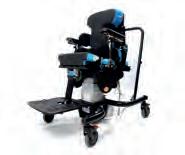
If your vehicle has been adapted or modified to cater for your disability, or you’re a carer who needs bespoke cover, experienced insurance experts at Adrian Flux can talk you through our tailor made policies. Call Adrian Flux today to make even bigger savings with our newly reduced rates. Policy benefits can include: M New for old cover on adaptations M Breakdown cover M Any driver cover available M And many more... Call our UK team on 0800 081 0462 Ask us about our new for old cover on adaptations adrianflux.co.uk Authorised & regulated by the Financial Conduct Authority Trustpilot rating checked on 19th April 2023 Car insurance adapted for you
THE JERSEY HOTEL DESIGNED FOR DISABILITY

Located on the edge of Jersey National Park, with its stunning views and protected wildlife, Maison des Landes is the only hotel in the Channel Islands designed specifically for people with disabilities. Now nearing the end of a £3.8 million refurbishment, the hotel is taking bookings for the 2023 Summer season.

MODERN
The newly refurbished Maison des Landes will combine the relaxing atmosphere of a modern hotel with the very latest facilities for people with disabilities, their families and carers. Guests will be able to relax in the hydrotherapy pool, enjoy the tranquil grounds and take in the beautiful views.

The hotel has 23 specially equipped rooms, a restaurant that seats 48 people, a licensed bar, and a beautiful lounge and orangery. Guests will also be able to book appointments in the hotel’s treatment room including massages, hairdressing,
nail treatments and visits by the chiropodist.
Each of the bedrooms is different, which means that the team can select the accommodation that will best suit your needs. Whether that’s inter-connecting rooms or specific facilities, they’re able to tailor your experience so that you can relax without worry.
A TASTE OF THE CONTINENT
With its French road names, quaint customs, beautiful coastline and network of green lanes, Jersey offers a taste of the continent, but is only a short hop from the UK. Located in the Island’s north-west corner, close to St Ouen’s Bay, Maison des Landes is the ideal base to explore everything Jersey has to offer. Accessibility to local tourist attractions has never been better. From boat trips and specially-designed beach wheelchairs to historical sites and museums, the island is well-equipped to offer disabled people a wonderful stay. Flexibility is at the heart of Maison
des Landes: guests can choose to join an organised tour or explore the island on their own. The hotel’s relationships with Jersey’s activity providers, tourist attractions and disability organisations enable guests to make the most of the facilities at Maison des Landes as well as the programme of activities on offer. There’s a fleet of specially adapted minibuses which make it easy to get around, too.
Because Maison des Landes is designed specifically for people with disabilities, visitors are able to relax in a way that’s not always easy in other hotels. The hotel’s friendly and empathetic team are on hand to assist you and ensure that you have an enjoyable and memorable stay. For a relaxing break, there really is no better place in Jersey for people with disabilities, their carers and those seeking respite.
FOR MORE INFORMATION
For more information about Maison des Landes visit www.maisondeslandes.co.uk
38 enablemagazine.co.uk
Thoughtfully designed to meet the needs of disabled guests, at Maison des Landes you can enjoy a worry-free holiday
enable travel
Chipping Campden’s history in stone is the Cotswolds’ hidden gem - an idyllic centre for easy access to the local towns and villages, Stratford, Cheltenham, Gloucester, Oxford, Warwick & Worcester, etc.


George
a 7



Mobile/Text: 07889 649812
Email: info@cotswoldcharm.com
Visit our website: www.cotswoldcharm.com



Reopening after a stunning £3.8 million refurbishment

The only hotel in the Channel Islands designed specifically for people with disabilities, Maison des Landes provides the relaxing atmosphere of a modern hotel and the very latest facilities.




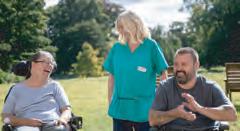

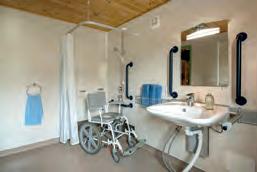

• 23 specially equipped rooms








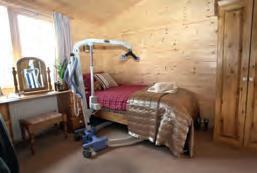


• Lounge and orangery
• Hydrotherapy pool
• 48 seat dining room
• Large tranquil gardens
• Views of Jersey National Park
For more information please visit our website: www.maisondeslandes.co.uk, call 01534 481683 or email: reservations@maisondeslandes.co.uk

Rollinwetroomshower Off-roadwheelchairhire Staysomewherespecial Wheelchairaccessible Self-cateringlogcabins inthePeakDistrictcountryside Mobilehoist Specialistequipment www.hoegrangeholidays.co.uk tel: 01629540262 Denis Duncan House
fully accessible, self-catering holiday home in Dirleton, East Lothian. To find out more and book, visit denisduncanhouse.co.uk Speak to Jo or Katy to book on 01620 892864 leuchiehouse.org.uk Tailored short breaks with 24 hr nursing care
is a charity registered in Scotland
SC042249 50% funding available on certain dates
Leuchie’s
Leuchie
no
A A 4—Star Self catering
Michael Haines George Barn, Blind Lane, Chipping Campden, Glos. GL55 6ED
Barn is within no more than
to 8 minute walk to the curved High Street, its inns, restaurants, shops & attractions.
EMOTIONAL SUPPORT Finding
With more open conversations around mental health in healthcare settings and a host of apps and helplines, learning about and attending therapy should be more accessible than ever before, but for disabled people there is one glaring issue: often, counsellors have no frame of reference or training around disability, making it harder to use a service that can truly help and support you.

This gap is something that Helen Rutherford, a qualified counsellor, knew she had to fill. Helen is 45, has spinal muscular atrophy, and is a full-time electric wheelchair user.
“Living with a progressive neurovascular disease brought many challenges in my own life and when I was younger, I always felt like an outsider, like I didn’t belong,” shares Helen. “I wasn’t able to relate with anyone about my own experiences as I didn’t know anyone else who was disabled at the time.”
When Helen was in her 20s, her health issues lead to a number of major surgeries, leaving her isolated and very unwell. Becoming a qualified counsellor helped Helen to work through these feelings, and to find her career path.
Attending therapy is no longer a taboo topic, in 2021-22, the number of people accessing talking therapies through the NHS increased by 21.5 per cent
enablemagazine.co.uk 40
“I kind of lost my own identity to my illness,” reveals Helen. “Becoming a therapist was part of my process of really coming back from that difficult time because it really challenged me on how I felt and I got to know myself better. It really helped me feel confident in myself and happier in my own skin.”
At the age of 29, Helen embarked on her second degree, becoming a qualified counsellor. Since then, she’s launched a disability-led counselling service, Emotional Respite.
SPECIALIST
Helen has witnessed the stigma around therapy and counselling diminish over the years, a positive shift that has aided so many people in accessing worthwhile support, and having a service that is tailored to meet disabled people’s needs is a huge step forward. This wasn’t always the case: when Helen first qualified, she struggled to even find accessible premises to work in, further highlighting the lack of disability awareness in this space.
“I’d often have to travel much further to access work placements,” reveals Helen. “I thought to myself, if I can’t access mental health services as the person delivering it, then the people who want to use them can’t access the services.”
After researching specialist provisions in her area, Helen couldn’t find anything, and in 2014, Emotional Respite was created. Originally a private practice with a specialism in disability and illness. The service is available online, offering video and audio therapy, as well as email therapy. In the pandemic, the demand became overwhelming for Helen as an individual, and so she set up the Disability Counselling Group on Facebook for people who are disabled themselves and working as therapists, or for therapists who specialise in disability. She quickly formed a team of counsellors who have lived experience of disability.
“I felt that it was really important to focus on it being a disabilityled service so that there were strong levels of empathy and understanding,” explains Helen. “When I first started, I had clients come to me who had never come across a service like us before, they told me about having to explain a lot of the circumstances around their disability in therapy.
“I think that we cut through that because we kind of get it, we have this frame of reference that is learnt by our own experiences, that isn’t something that is taught during your training.”
BARRIERS
As an online service, Emotional Respite is an accessible option, removing multiple barriers for disabled people.
“It’s about making a service that’s inclusive and accessible for everybody, using technology removes a number of barriers to therapy including making it possible to access it from home, taking away things like travel costs, the headache of planning your journey, or relying on somebody else to take you to your appointment,” states Helen. “I also considered the cost to somebody’s health because personally, I can really relate to spoon theory, and it might take up a lot of spoons to go to an appointment.”
“One of the main things it creates is privacy for individuals who might not ever really experience privacy,” adds Helen. “I know myself from having personal assistants for the past 27 years, that with 24-hour care it’s difficult to have that space to have appointments on your own.
“This is something having an online service really promotes: it gives the opportunity for individuals to have autonomy and I think that’s quite empowering.”
INVESTMENT
While therapy can be extremely beneficial, Helen understands that it isn’t always easy to take that first step.
“I want to acknowledge that its daunting to go to therapy for the
first time if you don’t know what to expect,” empathises Helen. “Therapy is an investment in yourself, it can be part of your self-care and looking after your overall wellbeing.
“When living with a disability, there are many challenges that exacerbate things like stress and anxiety, so it’s important to know how to allow your body to process that.”
For someone who often feels isolated in their experiences, seeing a counsellor who understands the barriers that disable you can make a big difference.
“Therapy can facilitate positive change and help you learn positive coping strategies, to build better relationships with others and reduce stress and anxiety,” highlights Helen. “It can give you the space to process your emotions rather than internalise them because that’s not helpful: it’s not coping, it’s just surviving.”
For anyone worried about attending a session, Helen would encourage them to reach out and ask questions, she says: “There’s no commitment to it, you can have one session and try it and if it’s not for you then you don’t have an obligation to continue. We do an initial assessment and within that we can discuss a client’s worries about coming to therapy.”
With long waiting lists to access talking therapies through the NHS, the cost of counselling may be a concern.
“It was really important for us to reduce the cost of therapy where we can, because we want to make it as affordable as possible,” explains Helen. “If people are in receipt of direct payments, they can use part of that budget to pay for therapy. I don’t think that’s something people are really aware of. It’s part of their holistic care needs.
“I know we’re going through really difficult times with the economy right now and I know a lot of the clients we work with receive benefits. When they’ve done an initial assessment, we can even provide a letter recommending therapy and they can then have a conversation with a social worker.”
FOR MORE INFORMATION
To reach out for support, or to learn more about Emotional Respite and the services they provide, visit www.emotionalrespite.co.uk
41 enablemagazine.co.uk enable health
It gives the opportunity for individuals to have autonomy and I think that’s quite empowering



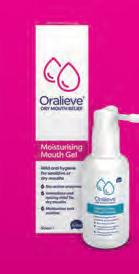













Suffering from a dry mouth? A complete range for the management of dry and sensitive mouths For more information, please email: hello@oralieve.co.uk or phone 01582 439 122 relief range Specially designed and tested with dry mouth sufferers Unique combination of moisturisers and enzymes supplement the same natural systems in saliva – essential for a healthy, comfortable mouth Formulated with gentle flavours, no alcohol and no SLS The Oralieve dry mouth product range is specifically designed to help provide effective and lasting relief for dry mouths throughout the day and night. Use code ENABLE10 at checkout for 10% off your first order www.oralieve.co.uk
YVONNE COBB’S
TURKEY LENTIL BURGERS
These turkey lentil burgers from food and lifestyle presenter Yvonne Cobb are healthy, nutritious and very filling. Yvonne, who owns her own cooking school, Yumma Food, is a Deaf presenter and cook for ITV This Morning and BBC Morning Live.

SERVES
6 COOK TIME: 30 minutes
INGREDIENTS
1kg Turkey mince
1 tin Drained green lentils or any cooked lentils of your choice
2 tspns Piri piri spices
½ tspn Cayenne Pepper



1 tspn smoked paprika
Salt and pepper to taste
Small handful of fresh coriander
STEPS
Start by mixing all of the ingredients together in one bowl. Once mixed, separate the mixture into 6 large burgers or 12 small burgers and spray with oil. Heat the oven to 180 degrees Celsius.
Line a baking tray with parchment paper and place the burgers on top. Bake in the oven for about 30 minutes.
Remove from the oven and serve with a side salad or chips.
YVONNE’S TOP TIPS

These burgers can become dry very quickly, so don’t overcook them. I like to serve my burgers with a side salad of rocket, cucumbers, sliced sugar snap peas and sliced radishes. You can swap green lentils for any other cooked lentils of your choice.
FOR MORE INFORMATION
Keep up to date with Yvonne online at www.yvonneycobb.co.uk or follow her on Instagram @yvonneycobb
43 enablemagazine.co.uk
enable life
RECIPE
Yvonne Cobb










































































www.crowdfunder.co.uk SEARCH: bealies adaptive joggers Tuesday16thMay2023 Freeparking 100+exhibitors Funzone CPDseminars 023 Free entr Forchildrenandyoungpeople withdisabilitiesandadditional needs,andthepeoplewho supportthem. z CPD s Fr FarnboroughInternational ExhibitionandConference Centre 9:30am-4:30pm South
THE BIG EVENT IS BACK
Mark your calendar because this May, The Big Event returns to the NEC in Birmingham
The Motability Scheme’s summer events are back with the return of The Big Event and regional One Big Days. These events offer visitors a fantastic opportunity to find out everything they need to know about the Scheme whilst also getting the chance to see the latest range of vehicles and products available. The 2023 event programme kicks off with the flagship show, The Big Event, taking place at the NEC in Birmingham on Friday 19 and Saturday 20 May 2023.
BIGGER THAN EVER
This year, The Big Event at the NEC is even bigger, with more cars to explore and the largest-ever display of Wheelchair Accessible Vehicles (WAVs). Visitors can also look forward to the return of the EV Charging Hub which debuted last summer, offering the chance to find out more about vehicle charging at home and on the go.

INNOVATION ZONE
New to The Big Event for 2023, the Innovation Zone will showcase future technology for cars, powered wheelchairs, and scooters. Visitors can chat to the Motability Operations Innovation Team about their latest initiatives and sign up for future pilots.

EXPERT SPEAKERS
The expert Speaker Sessions taking place at The Big Event offer expertise on a range of motoring and mobility topics, and for anyone who can’t attend, The Big Event: Streamed Live will also return. Speaker Sessions will be available to view online alongside a host of exclusive digital content.
TEST DRIVE
Visitors to The Big Event will get the chance to test drive a range of cars, including many fitted with popular driving adaptations.
All of the summer events are free to attend, with plenty of free parking available on-site. Each venue is fully accessible with plenty of seating, cafés, and accessible toilet facilities, as well as a children’s play area. Ear defenders are available on request, and a sensory room, providing a quiet space can be found at each venue.
FOR MORE INFORMATION
To find out more about all of the events, live streaming and test drive terms and conditions, visit www.motabilityonebigday.co.uk
45 enablemagazine.co.uk
enable motoring
NISSAN JUKE
Alisdair Suttie takes the Nissan Juke for a test drive. With quality and equipment levels on its side, this car is as distinctive as ever, but the ride comfort is not its strong suit

INSIDE
Nissan might have toned down the appearance of the Juke’s cabin a little for this second-generation version over the original, but there’s no doubt that the quality has improved considerably. Everywhere you look and touch, the Juke gives off a high-quality air that means it can easily be considered alongside the BMW X1 or Audi Q3 for anyone considering a small SUV.
There are other areas where Nissan has made strides, too, such as this Juke now coming with a steering wheel that adjusts for both depth and angle. It makes it much easier to find a comfortable driving position, though the view over the driver’s shoulder and when reversing
is still a bit limited. To counter this, Nissan provides a reversing camera in all but the base Visia trim. The top two Tekna and Tekna+ trims upgrade this to a full 360-degree bird’s eye view camera that makes light work of parking in tight spots.
The Juke’s infotainment is as easy to fathom and use as most. All of the dials are clear to read and, thankfully, there are separate buttons and controls for the heating and ventilation.
Space in the rear of the Juke is good, but not quite as generous as a Ford Puma or Skoda Kamiq. And it’s the same story for the boot, which is good but not great for this class.

46 enablemagazine.co.uk
REVIEW
PIP Advance Payment from £199. Find out more at www.motability.co.uk
EQUIPMENT DRIVING

There’s the usual range of trims from Nissan for the Juke, but Motability only offers the higher grade N-Connecta and Tekna models. This means you get 17-inch alloy wheels with the N-Connecta, along with climate control, heated front seats, rear-view camera, and front and rear parking sensors. You also benefit from rain-sensing wipers, and an EV-only drive mode with the Hybrid version. Move to the Tekna and you gain 19-inch alloys, 360-degree parking camera, more safety kit including lane keep assist and blind spot warning, and intelligent cruise control. There’s also an uprated stereo system, heated steering wheel and windscreen, and synthetic leather upholstery.
At present, Motability only offers the Nissan Juke with the 1.0-litre petrol engine rather than the petrol-electric Hybrid model. That’s a shame as the Hybrid is the best of the bunch for its better performance, lower emissions, and greater economy. Still, the 114hp 1.0-litre petrol-only model does a decent job in town and on the motorway. There’s a six-speed manual gearbox as standard, but the seven-speed automatic gearbox is a happier companion with this motor in all situations. The only downside here is the increased PIP Advance Payment needed to have the auto. Where the previous Juke felt brittle and unrefined on anything other
than a perfectly smooth road, the new Juke is much better. A Ford Puma remains the benchmark, but the Juke is good over the bumps, quiet at speed, and enjoyable to drive. Only in town does it feel a little harsh when it meets a pothole.


SUMMARY
The Nissan Juke still stands out for its looks, but also now for its quality, roomy cabin, and generous equipment.

47 enablemagazine.co.uk
enable motoring
Everywhere you look and touch, the Juke gives off a highquality air
C v w w RSA
At RSA, we understand how important your home is to you. It’s where memories are made, belongings are kept, and it’s your own private space to relax and unwind.
Whether you’re renting or are a homeowner, RSA have disabled people in mind and will ensure that you get the policy you need to feel safe at home. That is why we offer up to £400,000 buildings and £50,000 contents cover.

T g :
• C 1 w p £2,500
• A fi b p £500
• H g p £500
• C ’ y p £500
With every policy taken out, RSA will give an average of £39 to Motability Enterprises Limited to help disabled people with their personal mobility**.



W £1000 w y H I
You

Get your quote today: call FREE on 0800 316 8275 quoting WIN1000 or visit RSA online at: . b y. g. k


*(1) The £1000 cash prize draw is open to UK residents aged 18 or over excluding employees of any group company of RSA Group Insurance Ltd including Royal & Sun Alliance Insurance Ltd (RSA), Motability Enterprises Ltd and their families. (2) To enter the Prize Draw entrants must buy any RSA Home Insurance policy and correctly enter promo code WIN1000 on the website at rsahomeinsurance.motability.org.uk or when calling the call centre on 0800 316 8275. (3) The start date for receipt of entries is 01/04/2023. (4) The closing date is 30/06/2023 (5). Entries are limited to one per person/household. (6) To opt out, entrants should email motability.prizedraw@uk.rsagroup.com. (7) Any entry that is incomplete or fraudulent, or otherwise does not comply with these rules, will be disqualified. (8) The winners of the prize draw will receive a cheque to the value of £1000. (9) 3 winners will be chosen at random from all eligible entries received. (10) The draw will be made within 30 days of the closing date, winners will be notified by post within 30 days and receive their prize by post within 60 days of the closing date. (11) All entrants agree to be bound by the terms and conditions of this prize draw. (12) Winner’s details (surname and county of residence) may be published or made available unless the winner does not consent to their details being generally published or made available. Should a winner opt out of publicity, they may request that their details and winning entry are made available only to the Advertising Standards Agency (ASA) if requested by the ASA. (13) Decisions of the promoter are final. (14) These terms and conditions shall be governed by and construed in accordance with English law and any disputes arising from these terms and conditions shall be subject to the exclusive jurisdiction of the Courts of England and Wales. (15) The promoter is Royal & Sun Alliance Insurance Ltd. **An average of £39 will go to Motability Enterprises Limited. Based on RSA data May 2022 to October 2022. These funds are used by Motability to help disabled people with their personal mobility. Motability Enterprises Limited (Registered No. 1786053 England and Wales) is a wholly owned subsidiary of Motability (a Registered Charity in England and Wales No. 299745 and in Scotland No. SC050642) both of which have their registered office at Warwick House, Roydon Road, Harlow, Essex CM19 5PX. Motability Enterprises Limited is an Introducer Appointed Representative (No. 538055) of Royal & Sun Alliance Insurance Ltd. Motability Home Insurance is administered and underwritten by Royal & Sun Alliance Insurance Ltd (No. 93792) registered in England and Wales at St. Mark’s Court, Chart Way, Horsham, West Sussex RH12 1XL. Authorised by the Prudential Regulation Authority and regulated by the Financial Conduct Authority and the Prudential Regulation Authority. Calls may be recorded and monitored.

Take your chance to win £1000 by 30th June 2023* . And we’ll take care of insuring your home. Provided by Introduced by Advertisement Feature • L g xp • P • G • T gy • A g O v p , g: W w k y
can choose to pay in one single payment for the year, or in monthly installments at no extra cost.
home insurance with us using promo code WIN1000 by 30th June 2023. You will be agreeing to enter our prize draw to win one of three £1000 cash prizes.
Purchase
T C
51689_RSA_Lifestyle_258x210_RENEWAL-MARCH-23_AW.indd 1 20/03/2023 09:44
Y k
The diary
16 MAY
Kidz to Adultz South
Farnborough International Exhibition & Conference Centre
Dedicated to young adults with disabilities and additional needs, this exhibition is perfect for parents, carers and professionals working to support these young people. More than 140 exhibitors will be at the event, o ering advice and information on many areas including: funding; mobility; communication; legal ma ers; sensory and more.
www.kidzexhibitions.co.uk
4 JUNE
Kiltwalk
Aberdeen
Join thousands of people in Aberdeen for this year’s Kiltwalk and raise funds for your chosen charity, and they will receive up to 125 per cent of fundraising. Choose to walk either 3.7 or 18 miles, with this year’s event being the cheapest ever to take part in. Other Kiltwalk events will be taking place throughout 2023 in Dundee and Edinburgh.
www.thekiltwalk.co.uk
6-7 JULY
Disability Expo
ExCel London
This summer, a new event for disabled people, by disabled people is coming to London. Disability Expo is a two-day, a endeefocussed event with a packed programme where visitors will be able to browse hundreds of exhibitors showcasing products, services and o ering advice. The event will also have a range of panels, activities, performances and presentations, including an inclusive fashion show, a have-a-go area, and a gaming zone.


www.thedisabilityexpo.com
16 MAY
Training: SEND law and young people
Online
Delivered live over Zoom, this one day training has been designed for parents, carers and supporting family members of children who are approaching or are already above compulsory school age. Covering important topics like what your local authority should be doing, social care duties, the framework of the Children and Families Act 2014 and more, the content is particularly relevant to those who are navigating post-16 education for the first time. www.ipsea.org.uk
30 MAY World MS Day
Worldwide
Every year, this awareness day takes place to share stories, raise awareness and campaign for people a ected by multiple sclerosis (MS). The theme for this year's event is connections and you can take part by ge ing involved on social media, in your local community, or with a national organisation in the UK like the MS Society (www. mssociety.org.uk).
www.worldmsday.org
17-25 JUNE
Special Olympics World Games
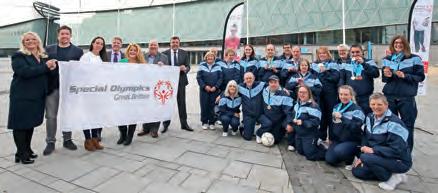
Berlin, Germany
Cheer on Team GB as they compete in Berlin 2023. The Special Olympics World Games are the world’s largest inclusive sports event, with thousands of athletes with intellectual disabilities coming together to compete in 26 sports across nine days. Keep up to date with Team GB in the lead up online (www.specialolympicsgb.org.uk), or show your support on social media using #TeamSOGB
www.berlin2023.org
enablemagazine.co.uk 49
Send your upcoming events to editor@dcpublishing.co.uk
enablemagazine.co.uk 49 enable life
PIC: ©
GARETH JONES
HEALTH Bendi Bag
The Bendi Bag is a unique product, designed with wheelchair users in mind. The bag fits to the shape of the knee and is available in a 700ml or 1300ml capacity, and connects to all-night drainage bags. The Bendi Bag enables people to manage their drainage system without the worry of frequent emptying or toilet access.

Available on prescription, Manfred Sauer UK 01604 595 696

www.manfred-sauer.co.uk
MOBILITY
Compression socks
Compression socks no longer have to be boring. These colourful, floral pa erned socks from Not Your Grandma’s help to reduce pain and swelling, are sensory friendly and are so to the touch. These socks are 15mmHg, providing light compression for people looking for pain relief and reduction in dizziness.

Not Your Grandma’s, £15 www.notyourgrandmas.co.uk
HEALTH Period pants
These Classic Bikini pants are perfect for heavy period days, light to moderate bladder leaks or overnight protection from leaks with heavy-overnight absorbency. Made by Australian brand Modibodi, they are comfortable to wear and come in a range of colours and designs. The pants provide an alternative to traditional disposable pads, liners and tampons, whilst giving you peace of mind. Modibodi, £22

www.modibodi.co.uk
Product picks
MOBILITY
Veloped wheeled walker

For the past 15 years, Trionic have been helping their customers return to a more active lifestyle. The terraintaking model, Veloped, will overtake curbs, rocks, roots and other obstacles without ever losing ground contact, making it one of the most reliable walking aids on the market.

Trionic, POA
0330 818 0867

www.trionic.uk/enable
KIDS
Mindfulness Remotes
These mindfulness tools guide children and young people through fun and engaging activities involving deep breathing, meditations and balance, helping to manage anxiety and improve focus. While anyone can use the Stix remotes and accompanying app, the activities have been developed with children in mind.

Stix, £159
www.stixmindfulness.co.uk
HOME Harmony FE
The Harmony FE through floor home li is suitable for those travelling standing, seated, independently in a wheelchair, or in a wheelchair together with a carer. Choose from three models with optional extras and finishes. Maximum load 325kg. Maximum travel 3.6m. BS 5900:2012 compliant.
Terry Lifts, from £13,000 01565 752 800 www.terrylifts.co.uk

Send us details of your products to editor@dcpublishing.co.uk enable life enablemagazine.co.uk 50 PICS: © NOT YOUR GRANDMA’S; MODIBODI; STIX
At Zero Seal Systems we offer a wide range of threshold products, developed for wheelchair access. These include a range of 6.4mm high flat thresholds in varying widths, a unique shower threshold which is available in two heights and a range of modular ramps that can be used in a variety of applications. All products are held in stock and available immediately. Please call us for further information or visit our website.




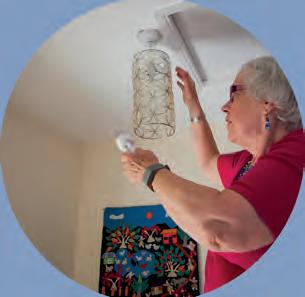
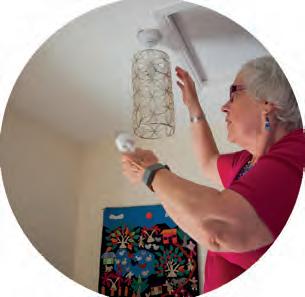


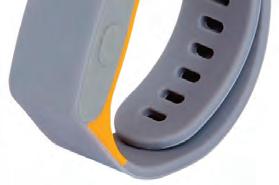









Providing access for your clients to their home and garden with our range of lifts for
and seated
wheelchair, standing
use.
Unit 1-3, Longridge Trading Estate Knutsford, Cheshire, WA16 8PR FOR MORE INFORMATION AND A QUOTE PLEASE CALL 01565 752800
enquiries@terrylifts.co.uk Full range of internal and external lift solutions Fully compliant to all relevant standards Proudly designed and manufactured in the UK Over 50 years of experience working with professionals Comprehensive advice and home survey Full Service and maintenance support ZEROplus WHEELCHAIR ACCESS PRODUCTS ZERO SEAL SYSTEMS LTD: 01785 282910 FIND OUT MORE ABOUT US AT: ZEROPLUS.CO.UK
For our full range of products go to our website
www.terrylifts.co.uk
WHEELCHAIR SHOWER THRESHOLDS 6.4MM FLAT THRESHOLDS MODULAR RAMPS The Assure Life-Saving Wristband acticheck.com 0345 25 75 080 ® SOS Alert I’m OK Checks FallAlert A simple squeeze of the wristband calls for help. The simple way to confirm you ’ re OK in the morning and before bed Monitors for severe falls. 4.8332 reviews Wh atever h appens,wwherever it h
U n i n ter r u p te d , comprehensive p rote c t i o n i n you r home, garden and be yond
appens, whenever it h appens, help is at h and.
























www.motomed.com
No place
like home
When you are thinking about making your home accessible or looking for a new home, it’s important to consider your requirements and the current barriers you face at home, and contemplate what type of housing would be best for you: supported living; social housing; private renting; buying a property. In social housing and supported living facilities, you should be given accommodation that suits your needs, or the provider will be responsible for making any necessary adaptations that aren’t
currently in place. Organisations like Dimensions UK (www.dimensionsuk.org), Mencap (www.mencap.org. uk) and Lifeways (www.lifeways. co.uk) can provide information on supported living and if its right for you or your loved one, while you can search for your local social housing provider on the government website (www.gov.uk).
If you rent privately or own your home, the process of applying for funding to help with the cost of adaptations is similar, but you may have to discuss this with your landlord if you are renting.

53 enablemagazine.co.uk
If you’re thinking about moving home or making adaptations to your current home, there’s a lot to consider. Understanding what is available and what you are entitled to can help
enable housing
enable housing
SMALL ADAPTATIONS
Often, small and non-permanent adaptations can make a big difference to the accessibility of your home. These are especially helpful if you are unable to move home or you aren’t eligible for a lot of funding to make big changes.
Adding products like easy-turn handles on to doors and taps, adjustable grab rails in the bedroom or bathroom, a bath or shower seat, or non-slip mats for the bathroom are all quick, easy and often inexpensive ways to remove barriers in the home. These solutions can even be helpful while you wait for an assessment from your local council, and don’t change the look or structure of your home if you are limited due to being in a private rental property.
Your health or social care team may be able to recommend where to purchase small items like this in your local area, or you can use an online shop like Complete Care Shop (www.completecareshop.co.uk, 03330 160 000) or Manage At Home (www.manageathome.co.uk, 0808 281 2637).
ACCESSIBLE ROOMS
If you are unable to move, or you don’t want to but your home needs
have changed, you may need to make bigger adaptations to your home as a whole - like installing outdoor grab rails, a stairlift or widening doors – or completely renovate certain rooms so that they work for you.
Both the kitchen and the bathroom are common renovations when looking at adapting the home to suit your needs. If you undertake one of these projects, don’t just consider what you or your loved one needs now: think about how this could change in the future to avoid large costs down the line. This can become very expensive, and so seeking advice and looking for funding should be an important step in your research.
FUNDING AND GUIDANCE
There are different ways to fund adaptations to your home regardless of whether they are expensive or affordable for you. Making essential adaptations to your home shouldn’t come with extreme financial pressure for you and your family. In some cases, your local authority will fund home adaptations up to a certain value, and you should always check if you are eligible for this funding. Speak to your health or social care team, or go online to
find contact details for your council, and ask for a home assessment. This is an assessment carried out by an occupational therapist and considers what help and support you could benefit from at home, including adaptations. As part of this free service, they’ll ask you questions about barriers you face in the home and what might help.
For larger adaptations, like installing ramps, widening doors or even adapting heating controls, a Disabled Facilities Grant could help you to cover the costs. This is available in England, Wales and Northern Ireland, and depending on your household income and savings, you could get upwards of £25,000 to help with costs. You can check if you are eligible on the UK Government website.
An additional and often faster way of carrying out adaptations is self-funding. If you have this option, getting in touch with a local Home Improvement Agency (HIA) can help you decide on what adaptations to carry out and what they could cost. You can find a HIA near you at www.findmyhia.org.uk
Searching for information around what funding you could be eligible for can be exhausting, or especially difficult if you don’t have many digital skills. Speaking to organisations like Age UK (www.ageuk.org.uk, 0800 678 1602), Scope (www.scope.org. uk, 0808 800 3333) or Shelter (www. shelter.org.uk) can help you filter through the information out there, only finding what is relevant to your unique circumstances. All of these organisations can offer information about home adaptations and your rights, and what your council is responsible for providing or funding. Citizens Advice (www.citizensadvice. org.uk, 0808 223 1133) is another great resource if you need impartial advice around asking for or getting adjustments to your home and dealing with your local authority.
FOR MORE INFORMATION
For independent advice on home adaptations and equipment, visit the Ask Sara website (asksara.livingmadeeasy.org.uk).

54 enablemagazine.co.uk
Pressure Areas
Centrobed Turning Beds

HAVE YOU GOT A PROBLEM WITH ALCOHOL? ONLY YOU CAN DECIDE!

To answer this question ask yourself the following questions and answer them as honestly as you can
1.Is drinking making your home life unhappy?
2.Does your drinking make you careless of your families welfare?
3.Do you drink because you are shy with other people?
4.Is drinking affecting your reputation?
5.Do you drink to escape from worries or trouble?
6.Do you drink alone?
7.Have you lost time from work due to drinking?
8.Has your ambition decreased since drinking?
9. Has your efficiency decreased since drinking?
10.Is drinking jeopardising your job or business?
11. Have you ever felt remorse after drinking?
12.Are you in financial difficulties as a result of drinking?
13.Do you turn to or seek an inferior environment when drinking?
14.Do you crave a drink at a definite time daily?
15.Does drinking cause you to have difficulty in sleeping?
16.Do you want a drink the next morning?
17.Do you drink to build up your confidence?
18.Have you ever had a complete loss of memory as a result of drinking?
19.Has your Dr ever treated you for drinking?
If you have answered “YES” to any one of the questions, there is a definite warning… If you have answered “YES” to any two, the chances are that you have a problem… If you have answered “YES” to three or more, you most certainly have a problem… “THE
PATHFINDER DECEMBER 2016 17
ONLY REQUIREMENT IS A DESIRE TO STOP DRINKING” Take action now and give us a call on 0800 917 7650… We are here to help!
My Vote My Voice
For years now, disabled people’s organisations have been demanding change to ensure voting is equal for everyone. In 2008, United Response launched the Every Vote Counts campaign, and in 2010, Mencap launched the Get My Vote campaign. With little improvements since then, the two organisations have teamed up alongside Dimensions and Ambitious About Autism to improve access.
CHALLENGES
Ali Gunn is the head of public affairs and policy at United Response, and believes that the organisations can make a difference by teaming up.
“People with disabilities haven’t been able to use their right to vote for a number of years,” explains Ali, “We want to ensure that people with learning disabilities and all people across the country are able to take part in the democratic process.”
The My Vote My Voice campaign is on a mission to encourage people with learning disabilities and autistic people
to vote in the next general election, but it is also bringing awareness to the barriers that currently exist.
“The campaign is making sure that MPs are aware of that, because sometimes their party communications, their policies or their manifestos might not be accessible,” reveals Ali. “We’re trying to get MPs to think about what their constituents need now rather than it being an afterthought.”
Organisations, groups and selfadvocates are invited to be part of the campaign. It is hoped that by promoting the campaign, gathering people’s experiences and sharing resources, more people are able to vote, not just in the next general election, but for years to come.
IMPORTANCE
Everyone should have the right to vote, but this isn’t always possible: inaccessible polling stations, a lack of easy read information during elections, and other barriers on polling day all play a part. Before the next general election arrives, people
around the country will first vote in local elections during May 2023, and with those a new policy comes into force that could cause further issues.
“These local elections are the first time that new requirements come into play under the Elections Act,” reveals Ali. “There is lots of brilliant stuff in there around accessibility, but there is also a new requirement for people to show valid identification on polling day. Disabled people are among around two million people who might not have that ID.”
The campaign includes working with the Electoral Commission to ensure people can access resources around these changes.
PRAISE
The campaign has already received praise and support from MPs, people with lived experience and other organisations.
“MPs have been engaging, they want to know what barriers are there, people are really seeing the value of joining together to make sure that everyone has equal access to voting,” offers Ali.
People with a learning disability and autistic people are being invited to share their experiences through the My Vote My Voice survey, with hopes that this data will go on to inform future policy and recommendations to the government.
“There’s a range of questions around accessible information; do people know where to go to find that information?; are people aware of voter ID?; what have their experiences been like at the polling station before?” considers Ali. “Once the survey closes, we’re going to produce a report which will look at the current barriers, and hopefully by the general election and following that, people’s experience will have improved.”
FOR MORE INFORMATION
To access resources, fill out the survey or to find out more about the campaign, visit the My Vote My Voice website (www.myvotemyvoice.org.uk).
57 enablemagazine.co.uk
Preparations have already begun for the next general election, due to take place by January 2025, but the need for equal access at the polling station remains. A new campaign is helping disabled people have their voices heard
enable life
Celebrating the beginning of Disability Pride Month, Disability Expo will be Europe’s largest event solely focused on people with lived experience of disability. During a packed two days we will host a series of discussion panels looking at every aspect of disabled living, celebrating disabled talent and fashion, educating and advising, as well as showcasing the latest and greatest products and services available on the market.




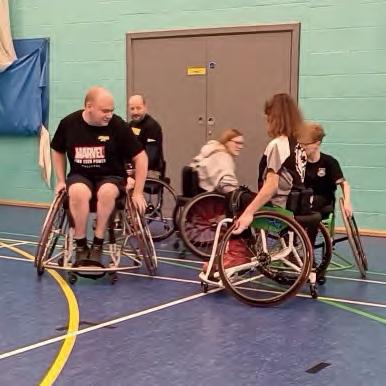


Register your FREE ticket An event for Disabled People, by Disabled People. Information & Advice Products & Services Live Performances Inclusive Fashion Have-A-Go Activities www.thedisabilityexpo.com Follow us on social media @DisabilityExpo_ Scan QR code to reserve your place!
Panel Discussions
A HELPING HAND
At Jobcentres around the country, there is specialist support available to help disabled people into work and to build their skills. Here, disability employment adviser Lynn Larkin reveals what the role entails and how people can access support

What does the role of a disability employment adviser entail?
My role is to support customers who have complex employment circumstances involving health and disability issues, to enable them to move towards sustainable employment. It is vital to gain a customer’s confidence and recognise the transferable skills they have to o er to be fully supportive of them. We proactively share knowledge and information about national health and disability programmes and local provisions. Each jobcentre will also have its own local resources with a plethora of support available.
It isn’t always about employment, it’s about what is best for the customer, even if that’s just helping them to move forward. We run ‘Health Hubs’, where we invite a group of people together to find out about what support is available. We have provision to help build confidence and resolve any psychological barriers people may be facing. We get more into the ni y gri y of the support available for disabled people than a work coach.
What inspired you to take up the role?
I started as a case manager in June 2020 a er losing my own business and having to make a Universal Credit claim. I had a fantastic work coach, and he referred me for the vacancy. Six months into that role I realised that a customer-facing position was more for me, and then I was approached to apply to be a disability employment adviser. They wanted someone who was passionate and empathetic, who
could have a really good discussion with a customer about what they can do, not about what they can’t.
How can people access this specialist support?
When a customer makes a Universal Credit claim, they can declare whether they have a health condition or not in order to be referred. Work coaches can also refer someone. Anybody with a health condition who is claiming Universal Credit or is on legacy benefits can gain from the help of a disability employment adviser, they just have to ask at an appointment or put a note in their online journal asking to speak to someone.
What can people expect from a typical appointment?
There isn’t really a typical appointment. We can deliver support in the most suitable way for the customer, whether that is over the phone, face-to-face, or on a video call. I might start by asking a customer some questions to find out more about them, but it’s really tailored to their individual needs. Generally, the support lasts up to six months, but it can be longer if necessary. A customer may require support with their employer around the Access to Work scheme, for example. They might se le into a new role and then realise that some adjustments might help them. We would then be involved in discussions with the employer.
FOR MORE INFORMATION
Discover more about the Disability Confident Scheme, the Access to Work scheme, how a disability employment adviser could support you, and the other help available at www.gov.uk
59 enablemagazine.co.uk
enable employment
It isn’t always about employment, it’s about what is best for the customer
Future Awards Talent

Receive £1,500 per year for up to four years







We offer two scholarships; one for engineering students, apprentices and degree apprentices who have faced financial or personal challenges and the other is for high achieving students and degree apprentices with a passion for engineering.
Apply today and change your tomorrow: theiet.org/future-talent



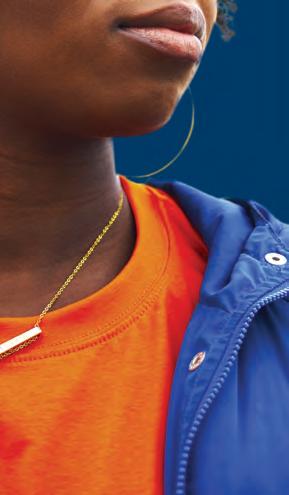







Deadline for applications: 22 September 2023



The Institution of Engineering and Technology (IET) is registered as a Charity in England and Wales (No. 211014) and Scotland (No. SC038698). Futures Place, Kings Way, Stevenage, Hertfordshire SG1 2UA, United Kingdom.
Jane Hatton
Jane is the founder of Evenbreak, a social enterprise run by and for disabled people, with a specialist job board and a career hive.
Send your questions to editor@dcpublishing.co.uk
DECIDING TO DISCLOSE
In her column Jane Hatton, founder of Evenbreak, answers your employment questions

AThe first thing to say is that you are not obliged to tell the employer if you are disabled or not, and if you are, you are not obliged to take part in the guaranteed interview scheme – it is voluntary.

The second thing to say is that being autistic does mean you are disabled. We talk about the social model of disability. This means that there is nothing wrong with you (which you know), but you are disabled by a world that is designed by non-disabled people, for nondisabled people. For example, if the built environment was designed by people who use wheelchairs, there would be no stairs – just lifts, ramps, and wide doorways. And if blind people designed websites, they would all work with screen readers. And if recruitment processes were designed by autistic people, they would rely less on CVs and interviews. You aren’t disabled because you are autistic, but because the world generally isn’t
geared up for autistic people – you face barriers that others don’t.
Back to the guaranteed interview. This scheme recognises that some disabled people’s talents may not be reflected in their CV, because of previous discrimination, and so bypasses the shortlisting stage for disabled people who have the skills required. If the employer is offering this, it’s likely that they are keen to employ disabled people (including neurodiverse people), and so it may be worth taking advantage of the scheme, especially if you are going to ask for any adjustments in the recruitment process. But it is entirely up to you - if you would rather not, and you have an impressive CV, that’s fine too.
Either way, I wish you the very best with your application!
61 enablemagazine.co.uk
QI’m applying for a job which offers guaranteed interviews to disabled candidates who meet the minimum criteria, which I do, and my mother says I should tell them I’m disabled so I can qualify. The thing is, I’m autistic, not disabled. Would I be cheating?
enable employment
You are not obliged to tell the employer if you are disabled or not
Visit the Evenbreak website to access candidate resources free of charge. www.evenbreak.co.uk hive.evenbreak.co.uk
EMPLOYMENT Q&A
A NURTURING WORK ENVIRONMENT
Fiona McMillan, who has progressed from a modern apprentice to a trainee auditor at Audit Scotland, writes about the importance of support and adjustments while working with a disability
Multiple Sclerosis (MS) is a lifelong, incurable disease. I was diagnosed shortly before I left school, but MS is also an illness that changes. As I have developed my career at Audit Scotland, I’ve been able to adjust my working life around the changes to my physical health.
DETERMINED
When I left school, I went to study chemistry at the University of Glasgow, but progressive sight and mobility issues led me to leave before I completed my degree. The positive was that I rethought my life and became determined to focus on my career.
I joined Audit Scotland as one of their first modern apprentices, completing the programme in 2021. Alongside this, I completed an accountancy technical qualification in my own time. It helped

confirm that I wanted to pursue a career in audit.
Pre-pandemic, going to an office every day, travelling to work on different audit sites and staying away from home, this career simply seemed impossible given the impacts MS was having on my body: mobility issues, visual difficulties and tiredness.
Yet with home working quickly becoming the norm, and with our audit
work being carried out remotely, a career in public audit seemed possible. I also had the encouragement and support of a phenomenal mentor, Elaine Boyd. Elaine saw I had the potential, ability and interest to be successful in this career, supporting and advocating for me.
NEW OPPORTUNITIES
Encouraged by this support, I applied and was successful in joining Audit Scotland’s school leavers programme. The studying itself wasn’t too great a shock as I’d experienced university and undertaken recent accountancy exams. ICAS, the professional body we study with for our accountancy exams, have supported me with reasonable adjustments and were incredibly understanding that MS is a changeable, unpredictable illness, that varies from day to day.
The other Audit Scotland trainees are also just lovely, helping me before I even ask when we’re studying together. For me, the shifts in how we work since 2020 have enabled me to get my life back and begin a new career. Now I can work and have a life outside of work, too. It has opened up new opportunities.
Whilst there’s great support in place for me already – from IT equipment, office furniture and adaptability in working from home – I will continue to step forward, to say what I need to best support me. These aren’t nice to have, but essential for my physical health. Perhaps it’s also my turn to help another generation of people with disabilities who want to thrive in a career of their choice.
FOR MORE INFORMATION
Discover what career opportunities Audit Scotland have available at www.audit-scotland.gov.uk
62 enablemagazine.co.uk
enable employment
I will continue to step forward, to say what I need to best support me
Fiona McMillan
We’ve equality at our core.
We’ve been named as a disability confident employer by Jobcentre Plus and have a positive attitude towards job applications from disabled people.

As we progress, we’ll continue to improve the way that we support our staff, customers, and stakeholders, regardless of disability, gender, ethnicity, age, religion, or sexual orientation.
www.audit-scotland.gov.uk/careers
Our Equality, Diversity, and Inclusion strategy is a priority at RoS. It’s not a one off or an event, it is an ongoing process, and we will work for our colleagues to feel safe, supported and included at work.
We want to be an employer of choice, attracting and retaining the best and widest possible pool of talent.
Specialist Further Education Achieving

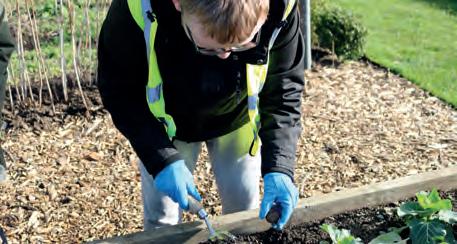
We are a specialist further education provider in the heart of Shropshire, providing education for students aged 18+ who have an EHCP with moderate to severe learning difficulties/disabilities. Offering day and residential placements. Our Education Pathways provide a wide range curriculum including:

•Individual learning programmes

•Communication
•Independent living skills

•Work experience and supported internships
•Personal & social development
•Community engagement
•Therapies
•Qualifications, accreditation and awards
patterns, different office locations,
home
that makes
difference
Support to work in the way that’s right for you Flexible working
working from
Work
a
01743 872250 www.condovercollege.co.uk admissionsandcontracts@condovercl.org.uk Contact Michelle to apply or enquire today Achieving dreams & aspirations
aspirations
dreams &
Highlighting barriers to
Higher education
When young people begin to research their next steps after school, there are plenty of organisations ready to offer advice, each of them advising disabled students that universities should provide suitable accessible accommodation and support. All universities have a legal duty to think about how to accommodate disabled students and to remove barriers in education, but what happens when this doesn’t go far enough?
A lack of adequate funding, accessible accommodation and consistent reasonable adjustments are all contributing to barriers, but without further attention, support and funding, these can’t be overcome.
“These things are only going to prevent young disabled people from entering higher education in general, and those that are already on courses won’t be able to continue their studies,” advises Rundip Thind, education officer at Disability Rights UK. The organisation runs the Disabled Students Helpline which offers information to students, apprentices and trainees via phone and email, advising on applications,
adjustments, your rights, funding and more.
ACCOMMODATION
At the end of 2022, student housing charity Unipol (www.unipol.org.uk) warned of a student housing crisis powered by a shift from universities running their own accommodation and instead, partnering with private providers. These fears were confirmed when the StuRents accommodation portal, which represents 70 per cent of student beds in the UK, released data that suggested there was a shortfall of around 207,000 student beds nationally. Alongside the general shortage of accommodation, cost is also of concern.
“We know that specialist accommodation will cost more than standard accommodation,” states Rundip. “If your accommodation is costing you more solely because of a disability, our advice has been to approach the university around making a reasonable adjustment to the cost of that accommodation.
“In those instances, we would recommend bringing the disability advisors within the university into the dialogue, because it is a disabilityrelated issue.”
In some cases, Disabled Students Allowance – a dedicated grant for disabled people in higher education which is provided by the government – can help cover this additional cost, but when this financial support also has to cover specialist equipment, non-medical helpers, travel and more, it might not be enough to fill the gap. One thing is clear: more funding is
necessary to aid in all of these areas and ensure young disabled people can attend the institution of their choice in a way that suits their needs.
FUNDING
“A lot of people reach out to us because they want to know about additional funding sources to bridge the gap between their student loans and the cost of living,” reveals Rundip. “People are struggling every day with the cost of things like rent, bills, even food, and in most cases the loan increases year on year currently don’t match inflation.”
The situation is concerning across the UK, but particularly in England where the student finance package will increase by just 2.8 per cent for the 2023-24 academic year, while inflation remains above 10 per cent.
“For students hoping to start higher education in September, there is huge concern for how they will actually make ends meet,” explains Rundip. “This is having a major impact on young people’s mental health, and on parents. A lot of the time parents are having to step in to support young people to remain in higher education.
“In the cost of living crisis parents can just about support themselves, and now they have to also support a young person which can be a big stretch for some people.”
Without increased funding, especially for disabled students, people will be forced to take a different path, or to withdraw from courses they are already on.
64 enablemagazine.co.uk
This is having a major impact on young people’s mental health
This September, young people around the country will embark on the next step in their education as they attend university, but for disabled students, there are factors creating a barrier to their future
CALLING FOR A HIGHER STANDARD
Chloe Tear, who has cerebral palsy and a visual impairment, is a university graduate and was a disability officer in her final year. Here, Chloe shares advice based on her experiences of support.
For me, getting the right support in place was difficult at first, but luckily all of the lecturers in my department were amazing. Adjustments are so individual, for me it was needing printouts, having things sent electronically in advance or having them blown up to A3. For a lot of students I know, they often felt like an afterthought and like the onus was on students to be proactive. Sometimes we just want to sit at the back of a lecture and listen just like everyone else, rather than having to advocate for ours needs to be met every single day.
REASONABLE ADJUSTMENTS
For young people who are still able to attend higher education despite concerns around funding and accommodation, universities should provide support to ensure they are able to learn in the best way for their needs.

“The reasonable adjustments duty that universities have doesn’t just apply to teaching, learning and assessments, but also to the services and facilities that are available through the university,” reveals Rundip.
Every university around the UK should have a specialist advisor or team who are dedicated to offering advice and implementing support. It’s never too early to start
communicating with them to ensure what you need is in place when your first day arrives.
“It’s important to start having conversations in advance of starting their programme,” advises Rundip. “Once they get their results and know where they definitely want to study, get those conversations going.
“A lot of universities wait for you to approach them about support, so I think it’s important to start that conversation with them early.”
These advisors can help with information around physical accessibility, adapting your learning resources, if the university provides its own grants for equipment or support, and more. They can also aid with any disputes if your support isn’t adequate when you start.
When someone asks me about support, I always say start as early as possible, it’s very easy to think ‘I’ll just turn up and it will be available’, but that doesn’t always happen. It isn’t like school where they have the same standards across the board, some universities are amazing at it while others aren’t, and I think a standard like that would really help disabled students both academically and socially. Despite having to fight for support sometimes, I do not regret going to university. I really loved the experience.
FOR MORE INFORMATION
65 enablemagazine.co.uk
Call the Disabled Students Helpline on 0330 995 0414 or email students@disabilityrightsuk.org to access advice, or view information online from Disability Rights UK (www.disabilityrightsuk.org).
enable education
The complexity of DISABILITY INCLUSION

Consultant and TV personality Simon Minty is no stranger to promoting inclusive practices and policies: for more than two decades now he has advised businesses on how to improve and as a Business Disability Forum ambassador, he recently cohosted the Disability Smart Awards. Diversity, equality and inclusion have improved, but there’s still a long way to go before disabled people can stop advocating for equity.
EXPECTATION
“This is the first time I remember where disability can open doors rather
than close them,” o ers Simon. “The expectation is greater and that means organisations need to adjust: that looks very di erent if you are a technology company, a theatre or an environment agency, but the core principles of independence and inclusion should always be there.”

Disability can no longer be treated as a blanket term: it’s time for organisations everywhere to pay a ention to individual needs.
“Disability almost doesn’t seem to be a big enough word now, d/ Deaf people may use the word deaf rather than disabled, people who are neurodivergent don’t always use the word disability even though they are under that umbrella,” advises Simon.
LEARNING
Improving can be complex, but now more than ever, there are ways to become informed on the di erent facets of disability.
“I would recommend looking at some books, some websites, and some podcasts, and the other thing I would advise doing is having a look online,” reveals Simon. “Go on Instagram, Twi er, Facebook, TikTok, find five interesting disabled people

and follow them. They are going to talk about this stu and that way you’re going to gradually get more informed.
“Social media is a light way to have it constantly dripping in. There’s a whole wealth of information that you can learn from and then you become an ally because you’re not just saying I care about this, you are being informed, you have learned this from disabled people.”
NEXT GENERATION
In Simon’s eyes, two of the greatest assets are the knowledge and progress made by the brilliant campaigners who have come before us, and the second is the new generation who are demanding more.
“We’ve changed so much and improved so many things which is amazing whether its access, legislation, visibility,” enthuses Simon. “If you are 21 and disabled, this is just the base level.
“Disability is so complex and we have a new generation whose expectations are greater than the previous one. They’re saying, great we’re here, but where do we want to go next?”
The next step is using this energy to influence practice and policy.
“We need to use the a ention people are ge ing on social media and turn it into sophisticated campaigning, to get young people in the room with the right people,” o ers Simon. “We need to continue to support each other because it’s really hard work, and I think the next generation have the energy to push.”
FOR MORE INFORMATION
Keep up with Simon on Twi er @simonminty
66 enablemagazine.co.uk
Tireless campaigning from disabled people has seen positive changes to legislation and everyday access, but we need more innovation to become truly inclusive. Simon Minty believes the next generation could hold the key
enable voices
Simon
This is the first time I remember where disability can open doors rather than close them
Find your perfect place.
As a leading recruitment outsourcing provider, Guidant Global can offer you direct and exclusive access to great jobs with some of the UK’s top employers.
We’re also a Disability Confident Leader, and our award-winning approach to disability inclusion is building careers and changing lives. It goes without saying, we welcome applications from people with disabilities! In fact, if you have a disability, we’ll guarantee you an interview for any internal role (assuming you meet the minimum


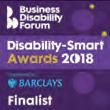
criteria required for the job) and please don’t forget to tell us about any adjustments you might need during the recruitment process.
If you would like to find out more about inclusive careers at Guidant Global, or search for roles with our amazing clients, please visit our website. jobs.guidantgroup.com
Motabilityfrom Lookers means: The ever yday freedomofhaving everythingincluded.
AScheme thatputs youinthedriving seat. Andeven two others.
Your insurance,servicing,maintenance andfullbreakdown coverincluded.

With insurance forup to three drivers included, you don’tneedtodrive to join the Motability Schemewith Lookers.


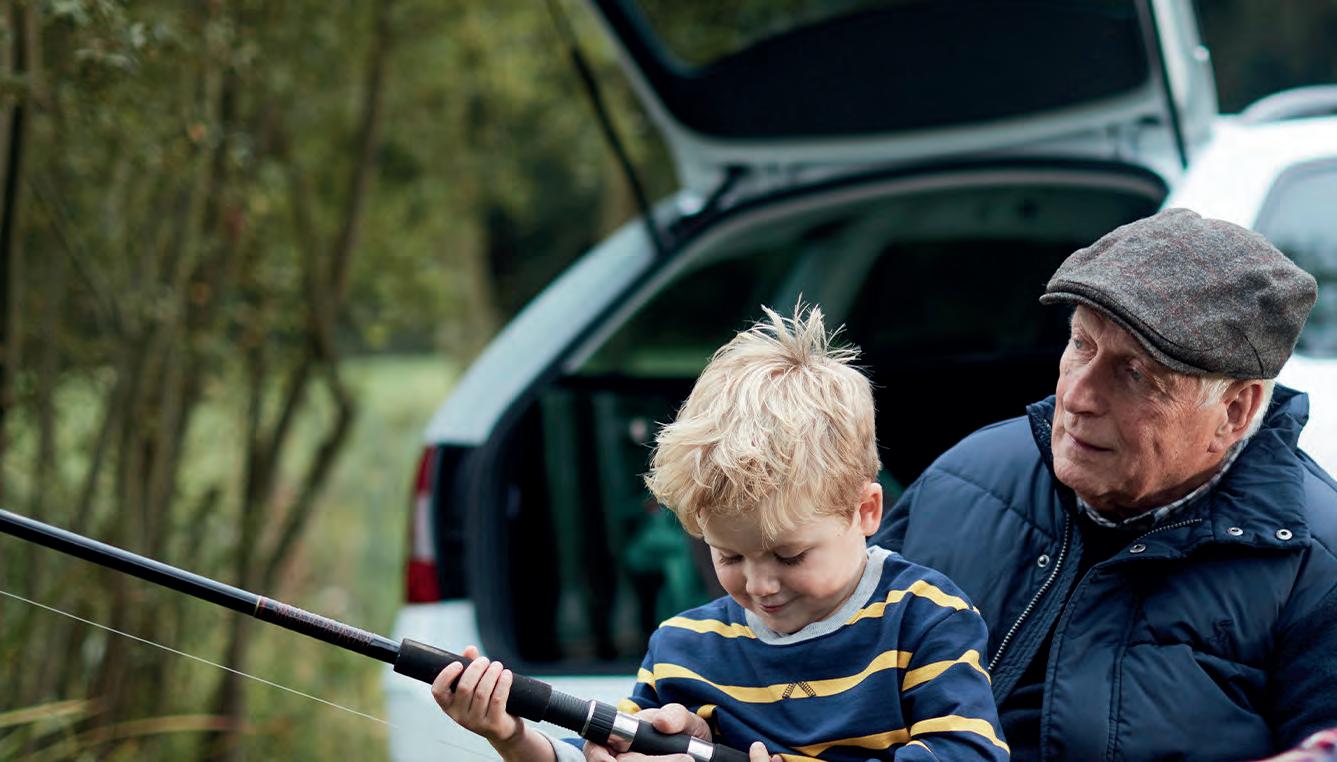
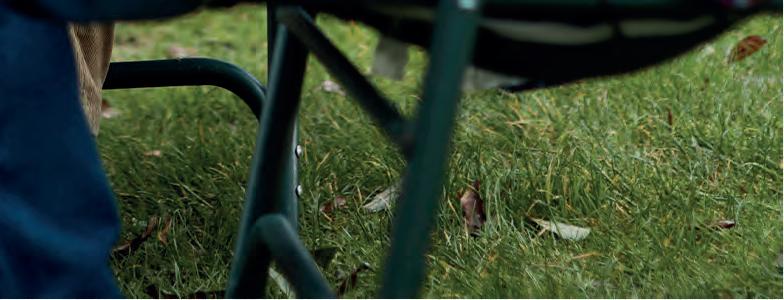
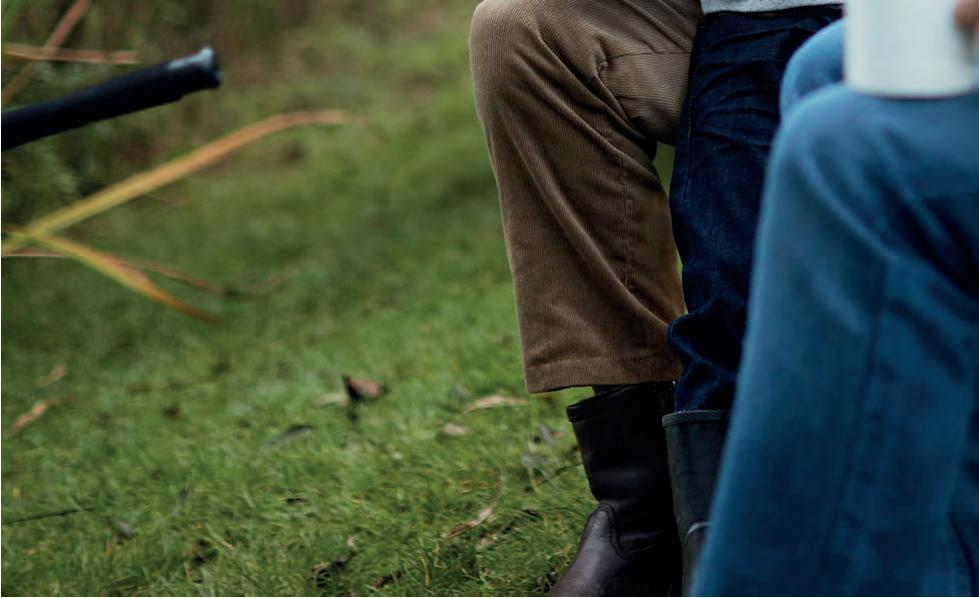
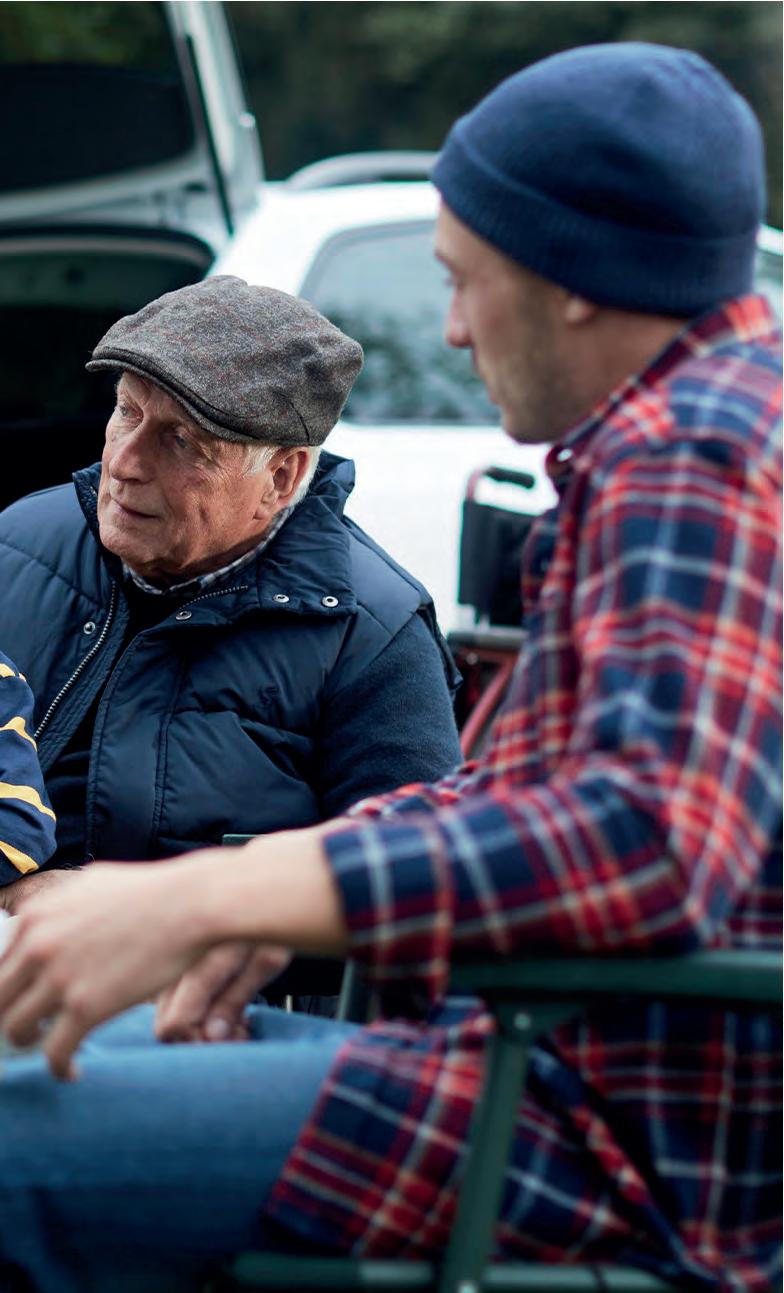

Talktoustoday
Talktoustoday
Talkto usaboutyour everydayfreedom
Visit: lookers.co.uk/motability
Visit: lookers.co.uk/motability
Visit: lookers.co.uk/motability
Over 120 Dealershipsthroughout the UK and 22 Manufacturers represented we are sure to have the perfect solution for all your mobility needs.
Over 120 Dealershipsthroughout the UK and 22 Manufacturers represented we are sure to have the perfect solution for all your mobility needs.
Over 120 Dealerships throughout the UK and 22 Manufacturers represented we are sure to have the perfect solution for all your mobility needs.
The Motability Scheme is administered by Motability Operations Limited (Registered Company No. 1373876), City Gate House, 22 Southwark Bridge Road, London SE1 9HB. The facilities o ered are
Lookers isregulatedbytheFinancialConductAuthority(“FCA”)andisregisteredwiththeFCAasacreditbrokerofMotability OperationsLimited,whoisthelenderinrelationtotheMotabilityContractHireScheme.TheMotabilityContractHireSchemeis administeredbyMotabilityOperationsLimited(RegisteredCompanyNo.1373876).ToqualifyyoumustbeinreceiptoftheHigherRate MobilityComponentofDisabilityLivingAllowance,theEnhancedRateMobilityComponentofPersonalIndependentPayment,theWar Pensioners’Mobilit y Supplement ortheArmedForcesIndependencePayment,which will betaken in lieuofthe four weekly rental Prices varydepending on vehicleselected.Termsand conditionsapply.
Lookers isregulatedbytheFinancialConductAuthority(“FCA”)andisregisteredwiththeFCAasacreditbrokerofMotability OperationsLimited,whoisthelenderinrelationtotheMotabilityContractHireScheme.TheMotabilityContractHireSchemeis administeredbyMotabilityOperationsLimited(RegisteredCompanyNo.1373876).ToqualifyyoumustbeinreceiptoftheHigherRate MobilityComponentofDisabilityLivingAllowance,theEnhancedRateMobilityComponentofPersonalIndependentPayment,theWar Pensioners’Mobilit y Supplement ortheArmedForcesIndependencePayment,which will betaken in lieuofthe four weekly rental Prices varydepending on vehicleselected.Termsand conditionsapply.
for the hire (bailment) of goods. You will not own the vehicle. Agreement subject to acceptance and age restrictions may apply. The agreement can be terminated early with the consent of Motability Operations Limited and administrative charges may be applicable. Mileage allowance of 20,000 miles per annum over three- or five-year terms. To qualify you must be in receipt of one of, the Higher Rate Mobility Component of Disability Living Allowance (DLA), the Enhanced Rate of the Mobility Component of Personal Independence Payment (PIP), the War Pensioners’ Mobility Supplement (WPMS) or the Armed Forces Independence Payment (AFIP), which will be taken in lieu of the four weekly hire rental. Attendance Allowance is a nonqualifying allowance. Terms and conditions apply and are available on request. Lookers is a trading name of Lookers Motor Group Limited, 3 Etchells Road, West Timperley, Altrincham, WA14 5XS, registered in England & Wales Reg. No. 143470. Authorised and regulated by the Financial Conduct Authority. We are a credit broker, not a lender and can introduce you to a number of lenders. Introducing you to a number of lenders means we receive a commission. Lenders pay commission at di erent rates either as a fixed fee or as a fixed percentage of the amount you borrow. The commission that we receive does not a ect the amount that you pay to the lender under the credit agreement. Talk to us about your everyday freedom Visit: lookers.co.uk/motability We’ve got dedicated parking you can reser ve for your visit. Just let us know and we’ll save you a space right out side.






























































































































































































































































































































































































































































































